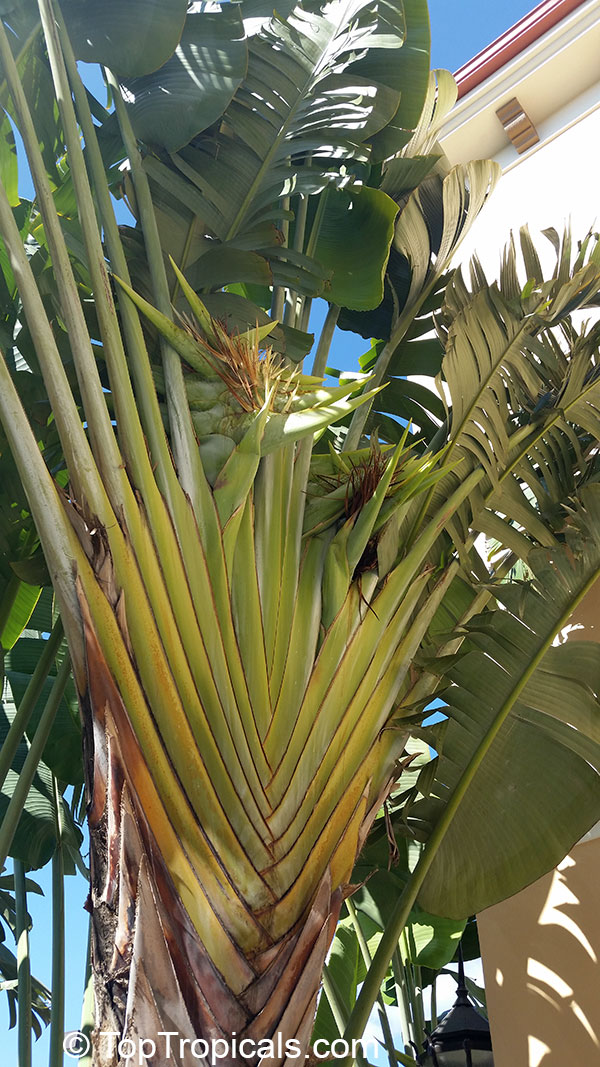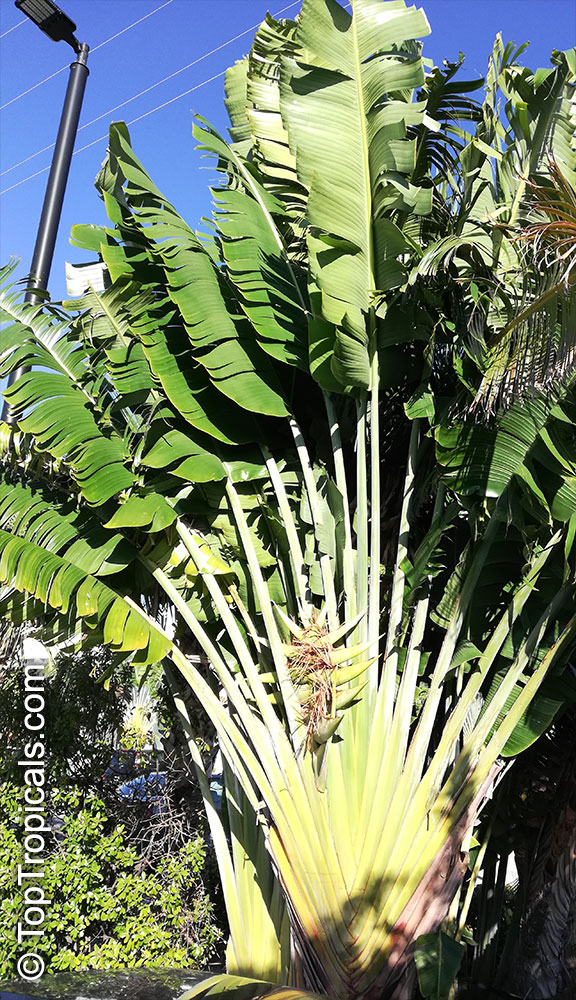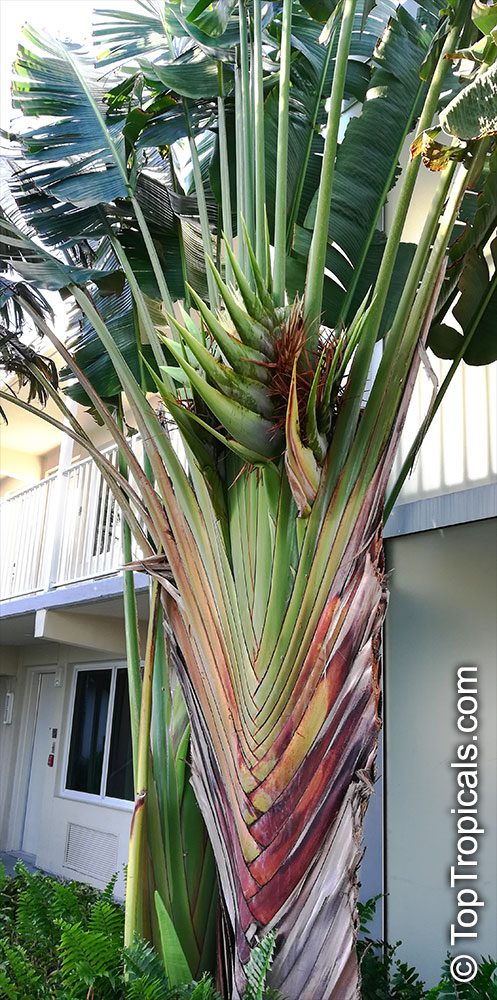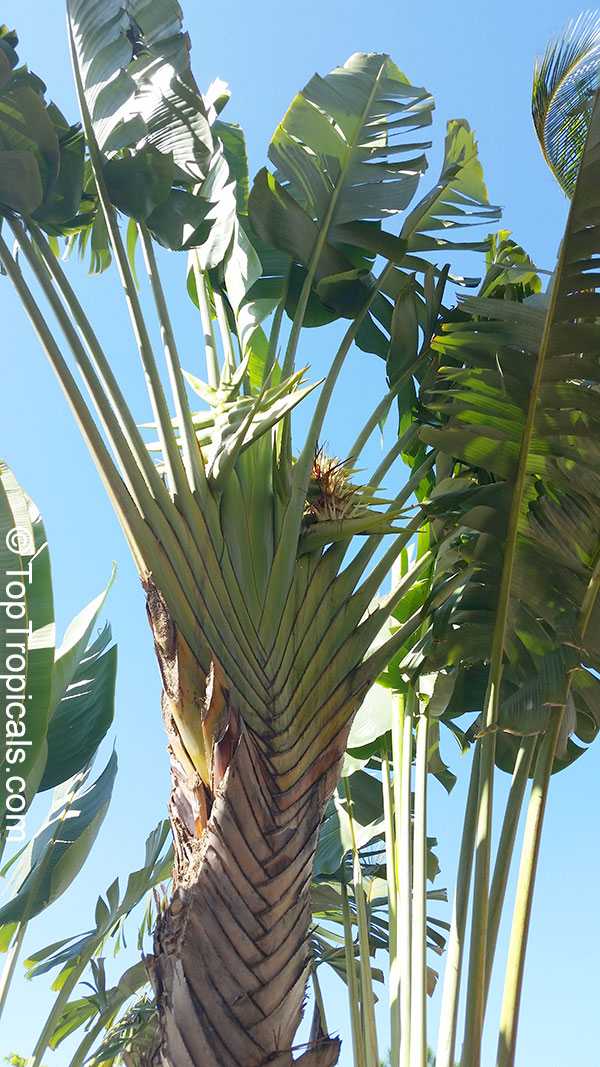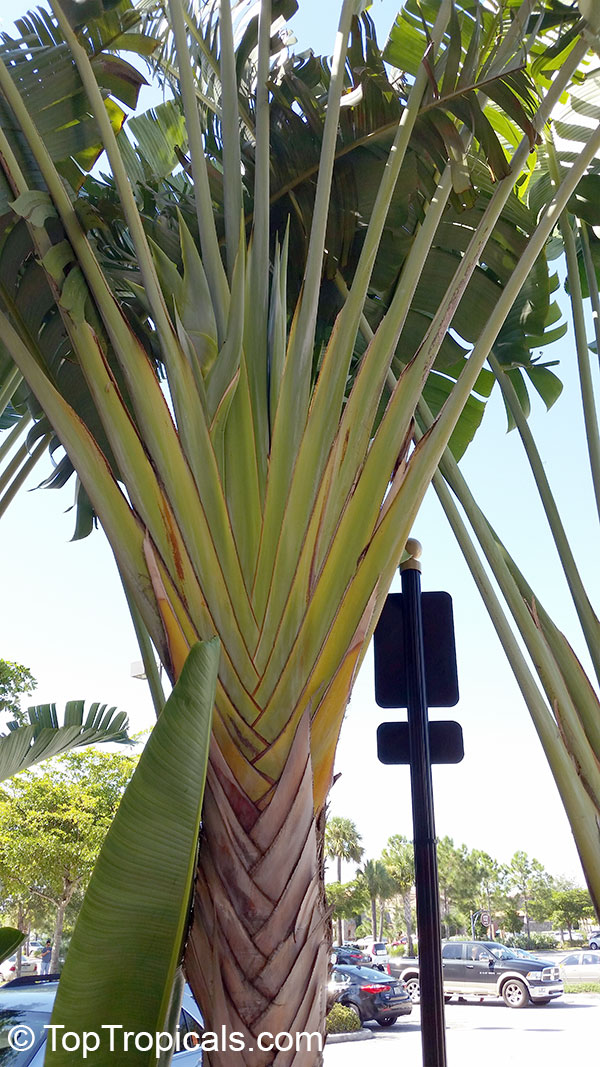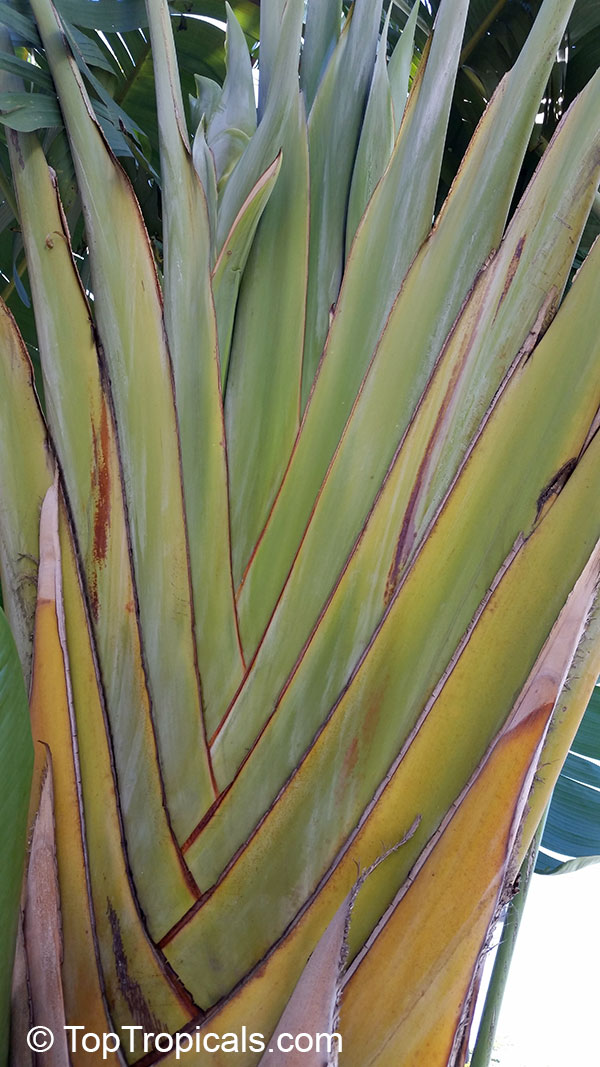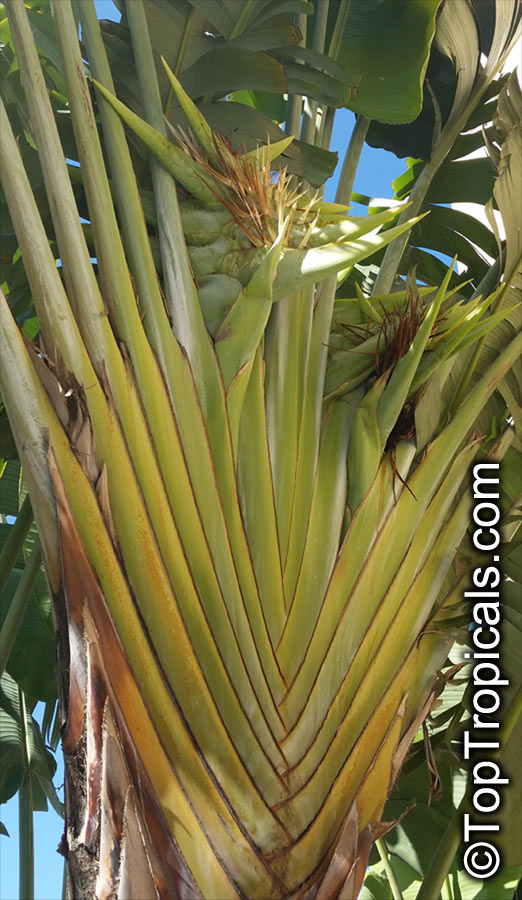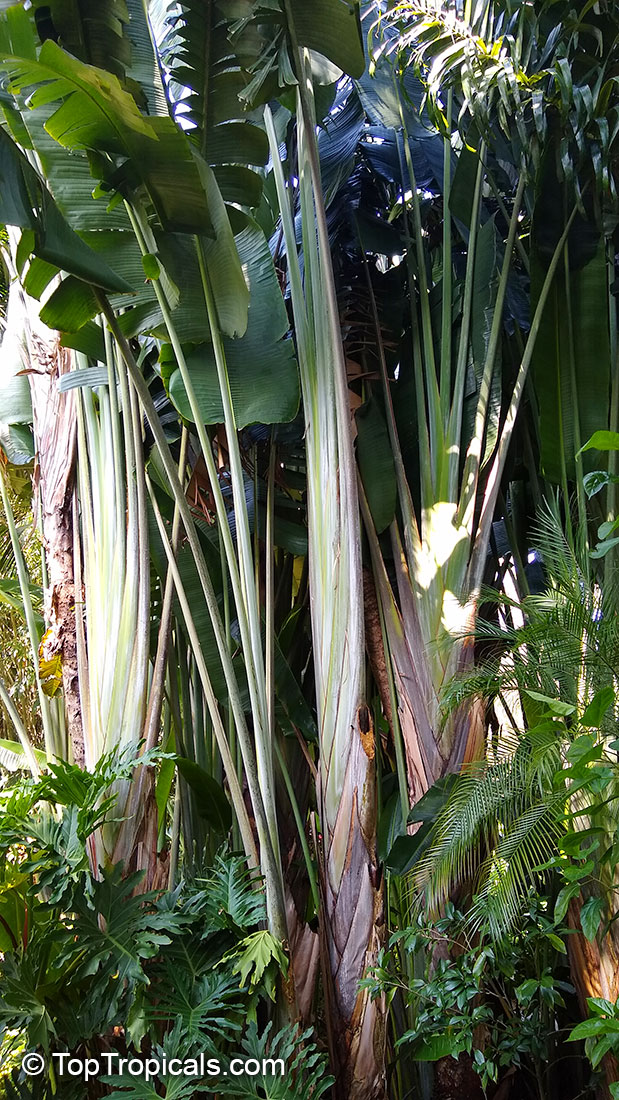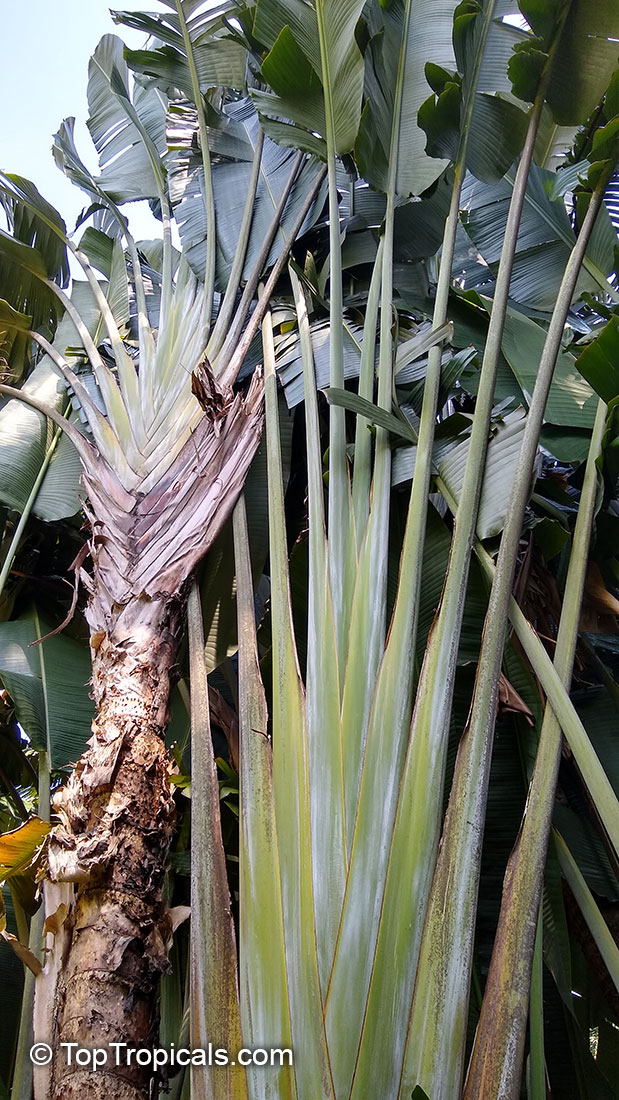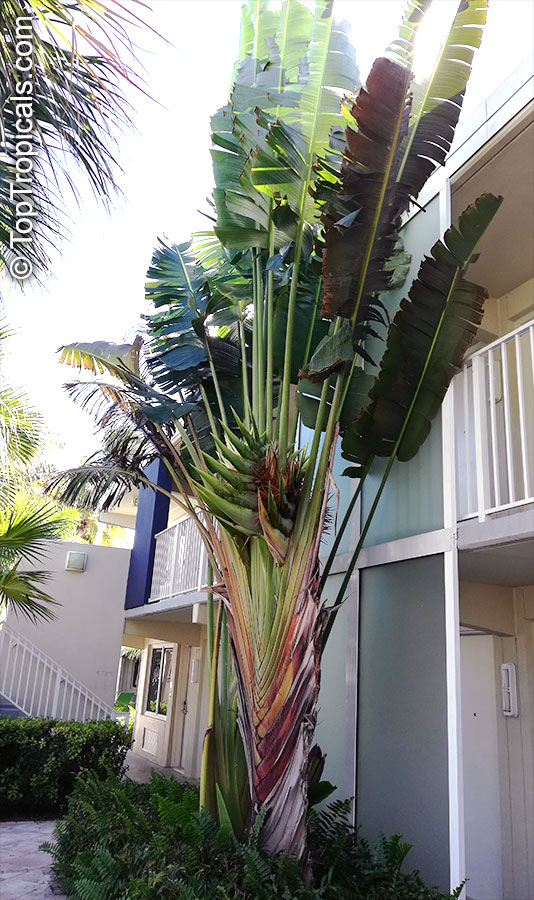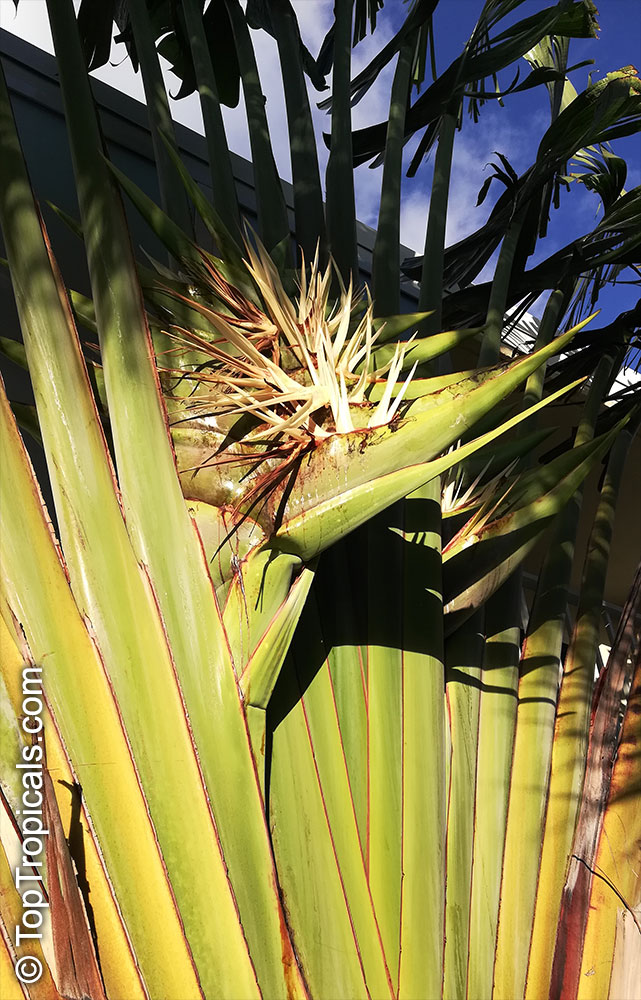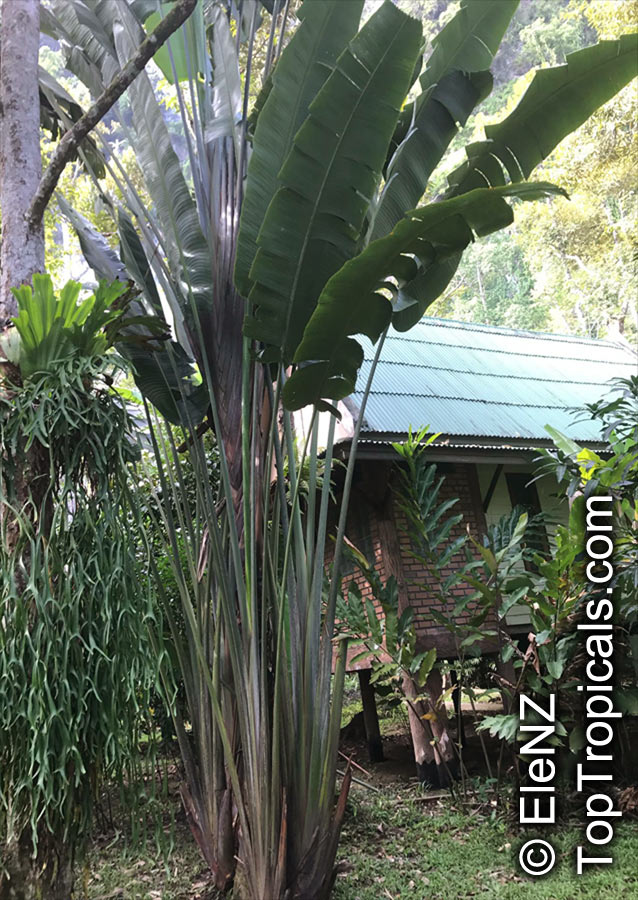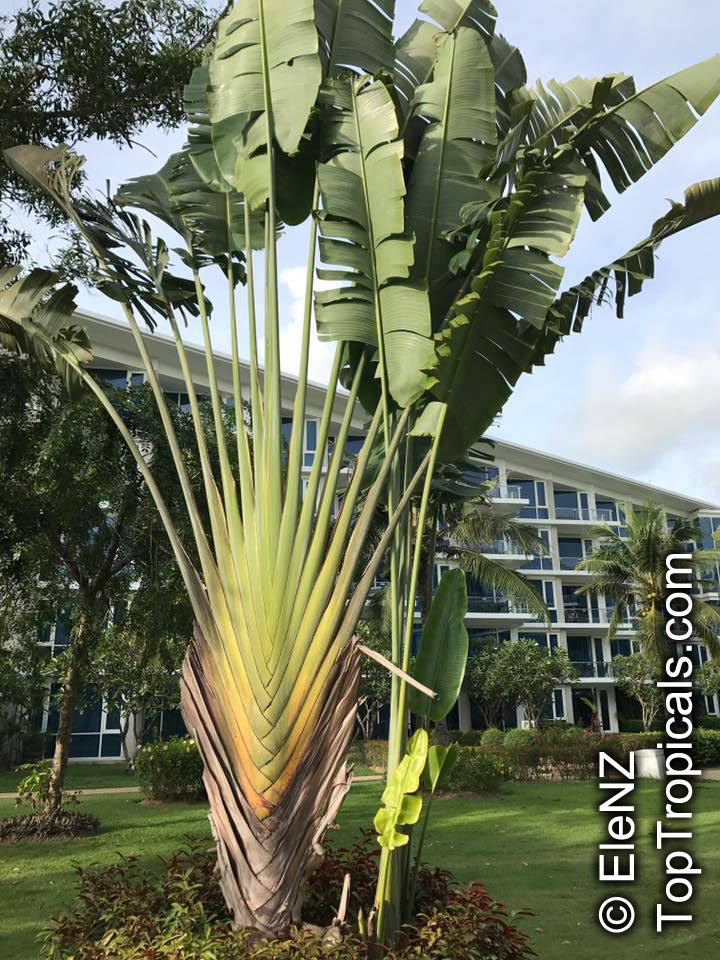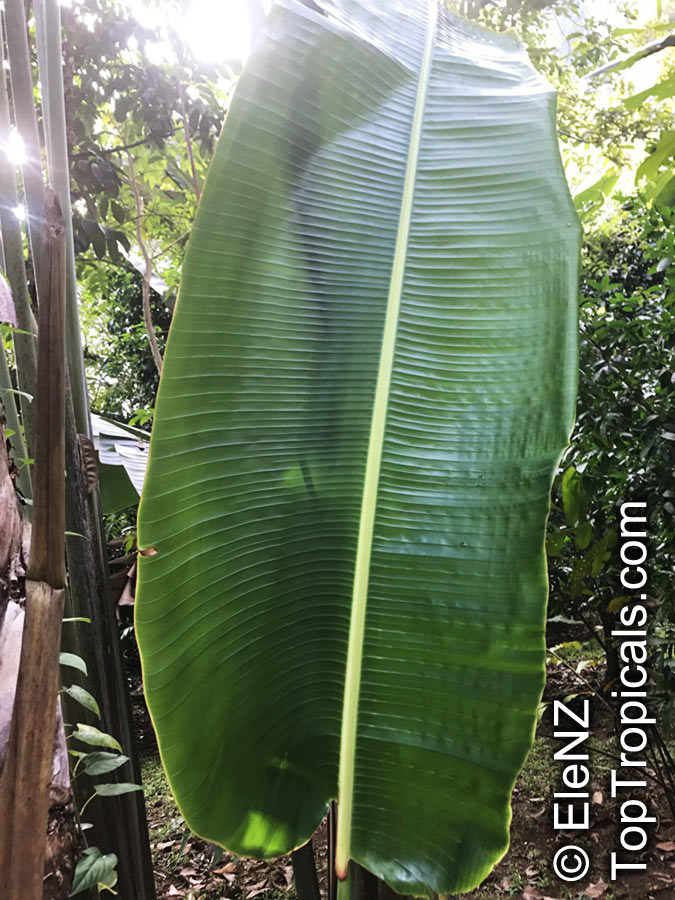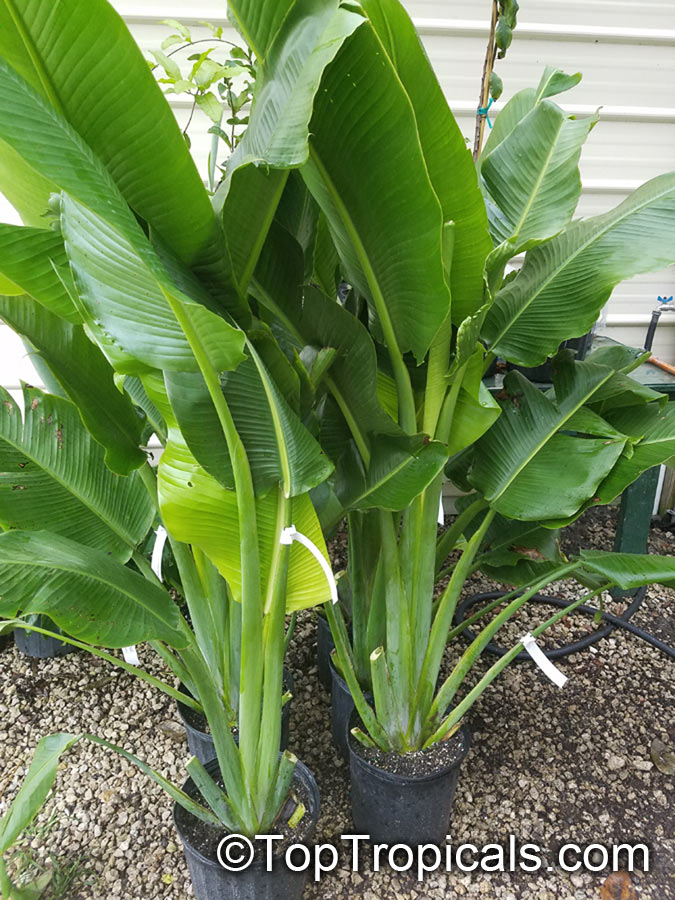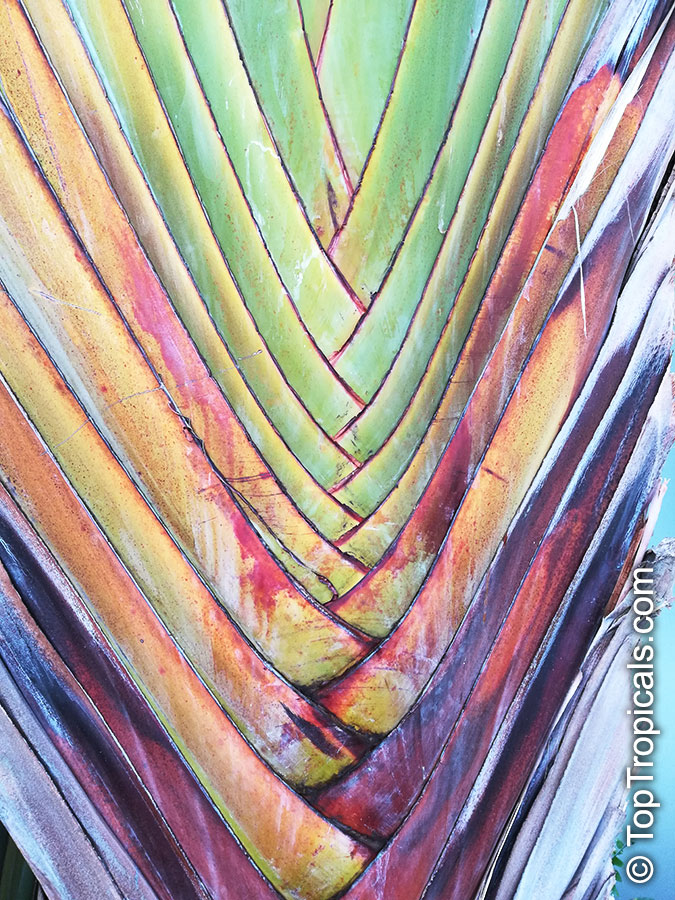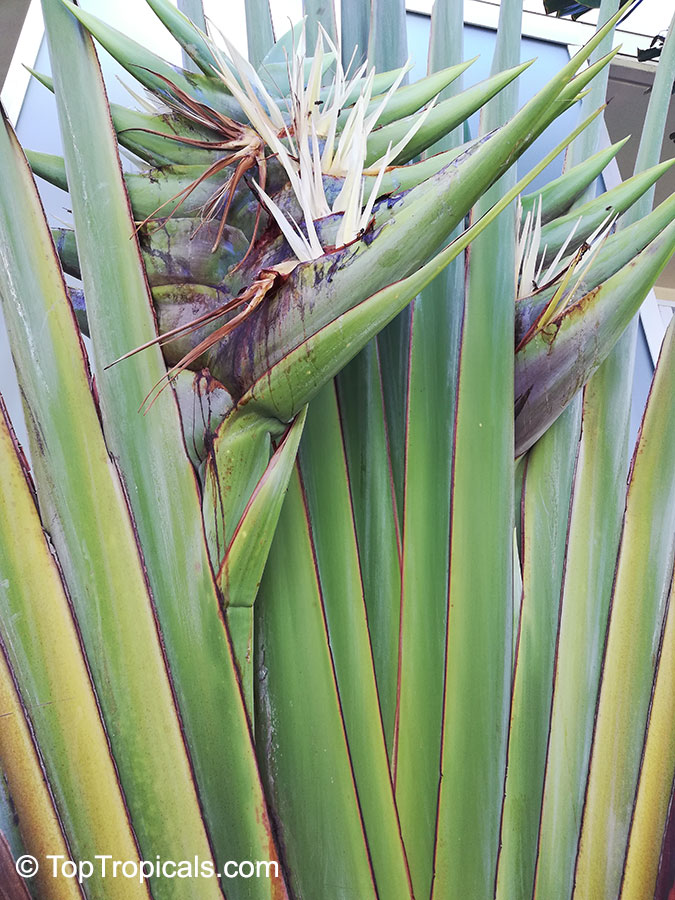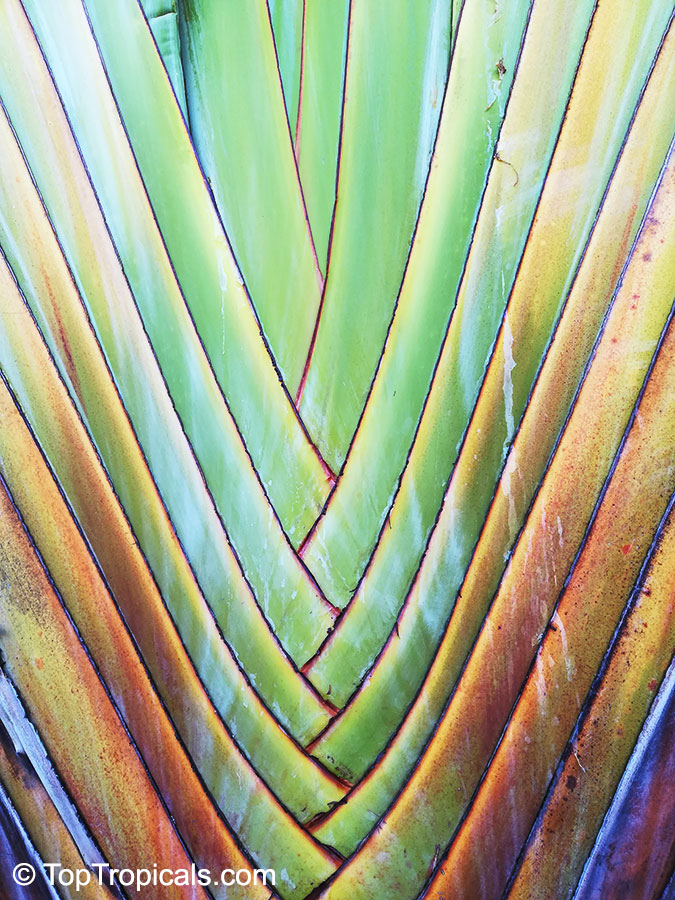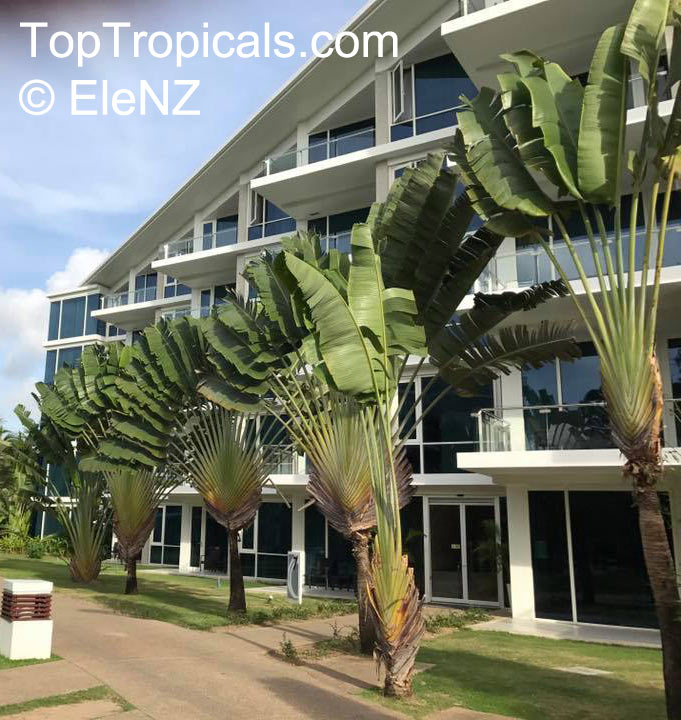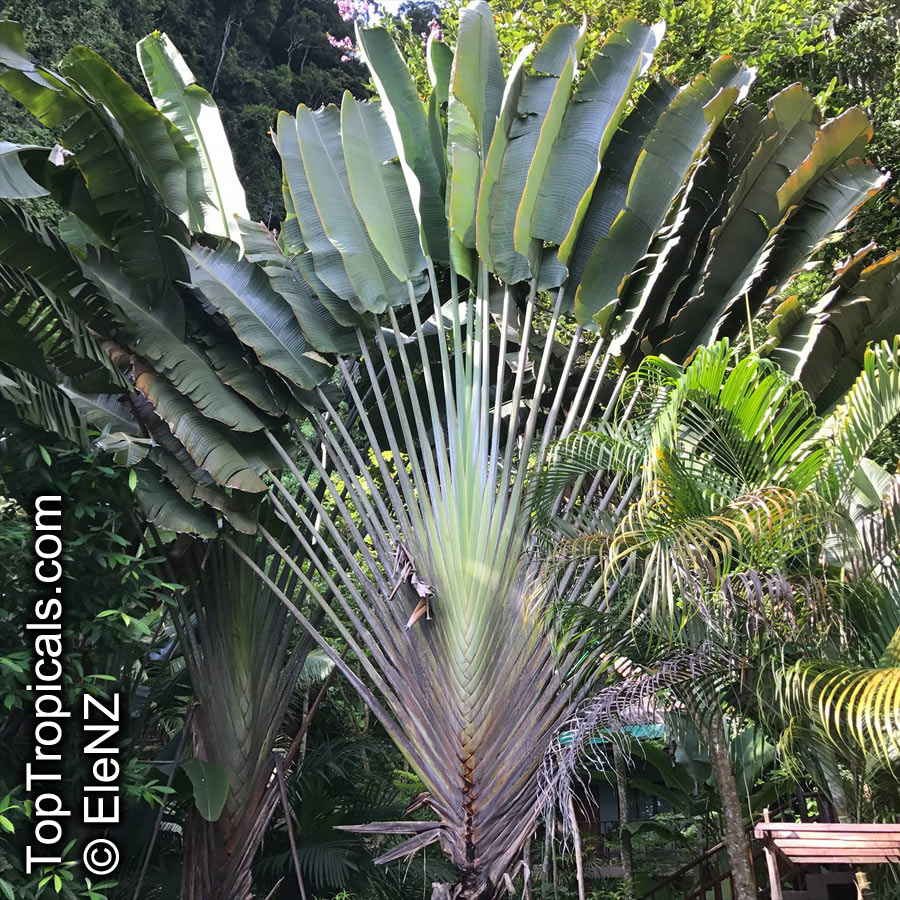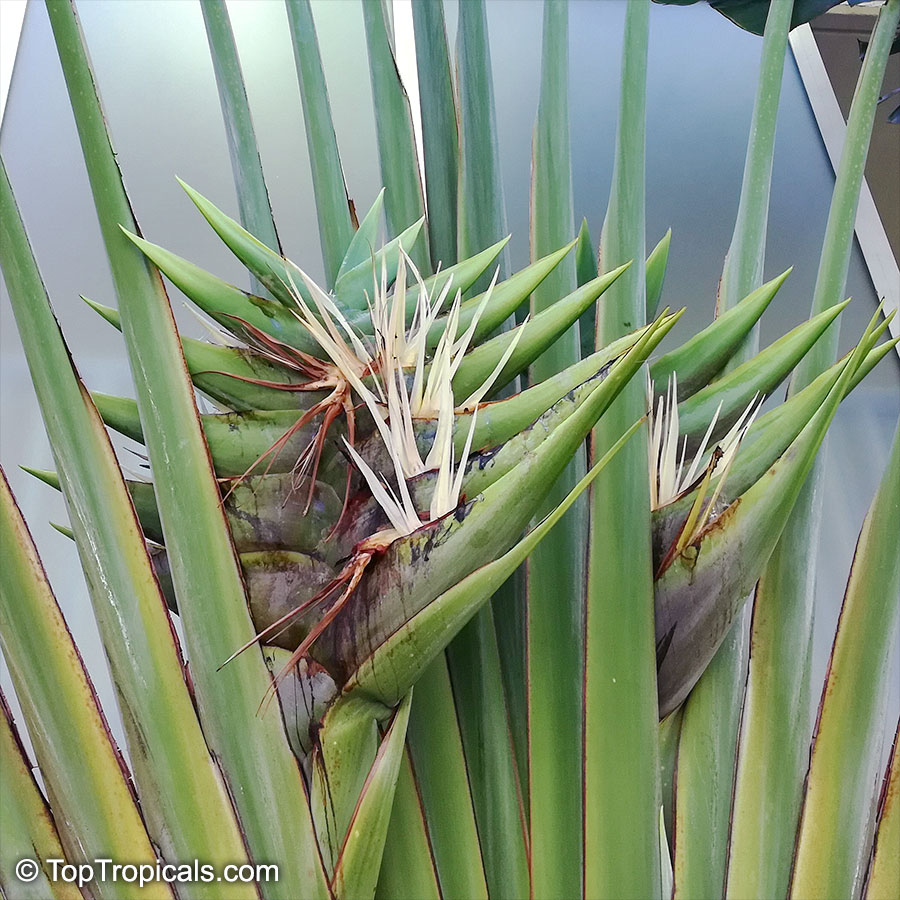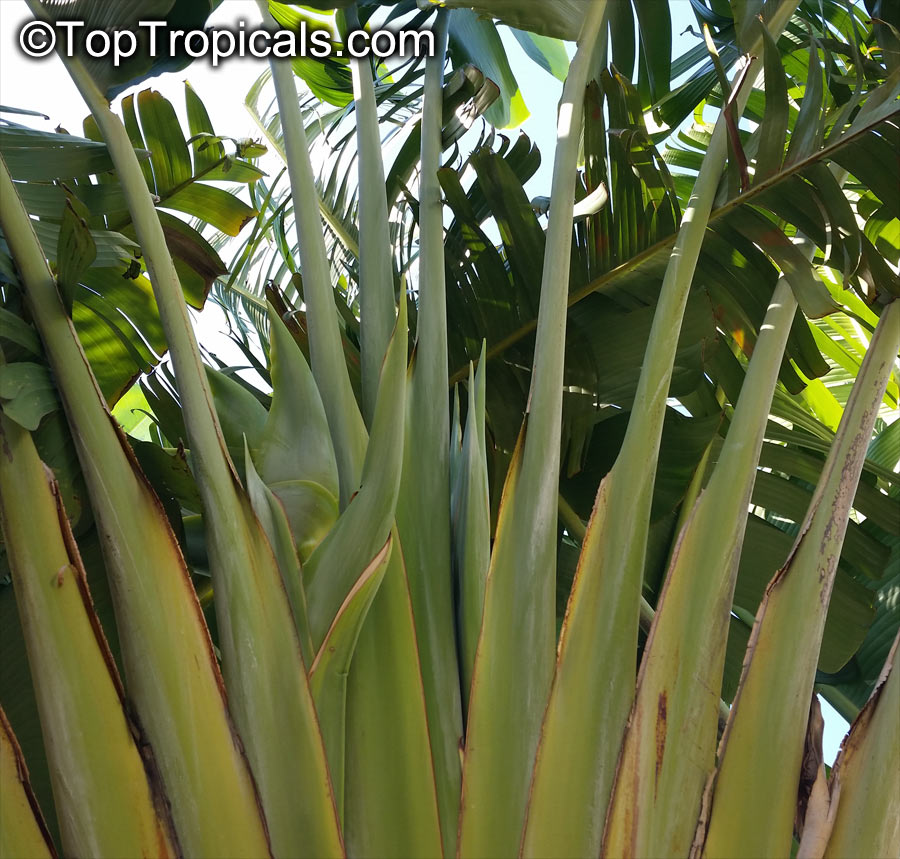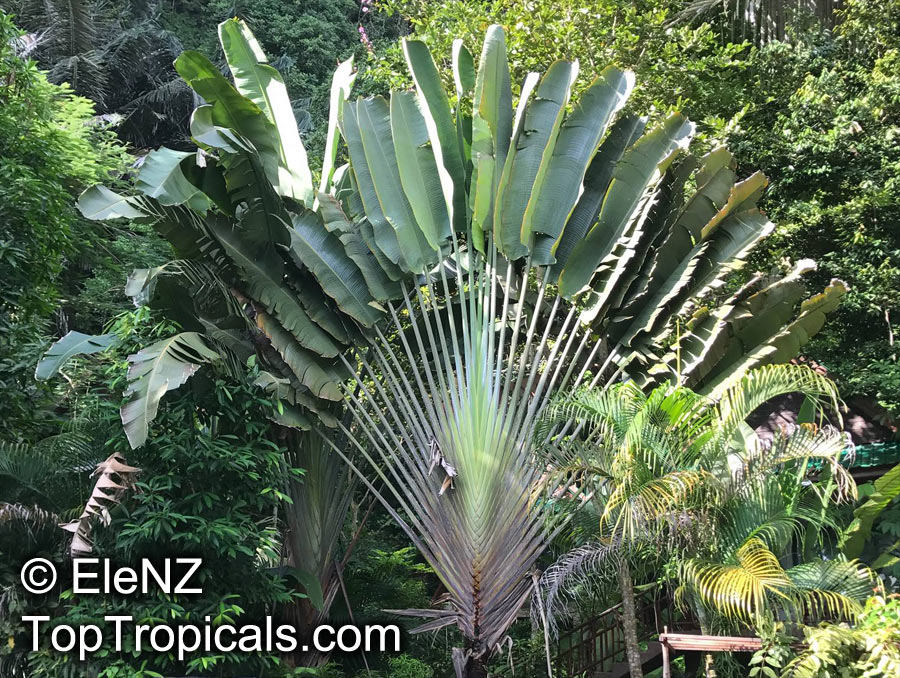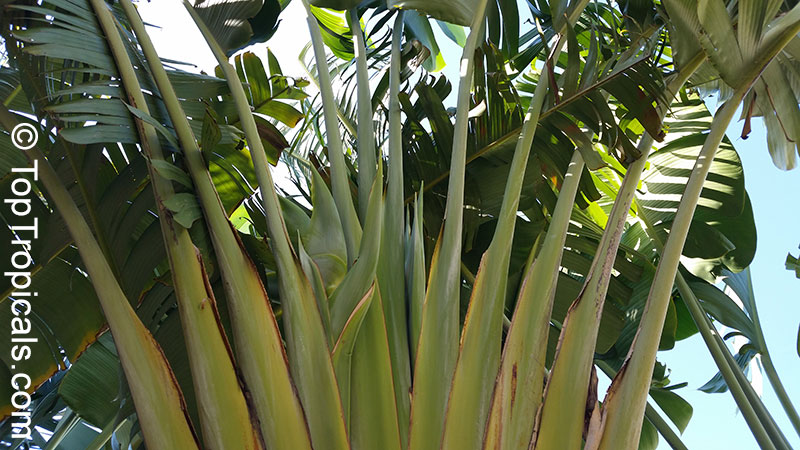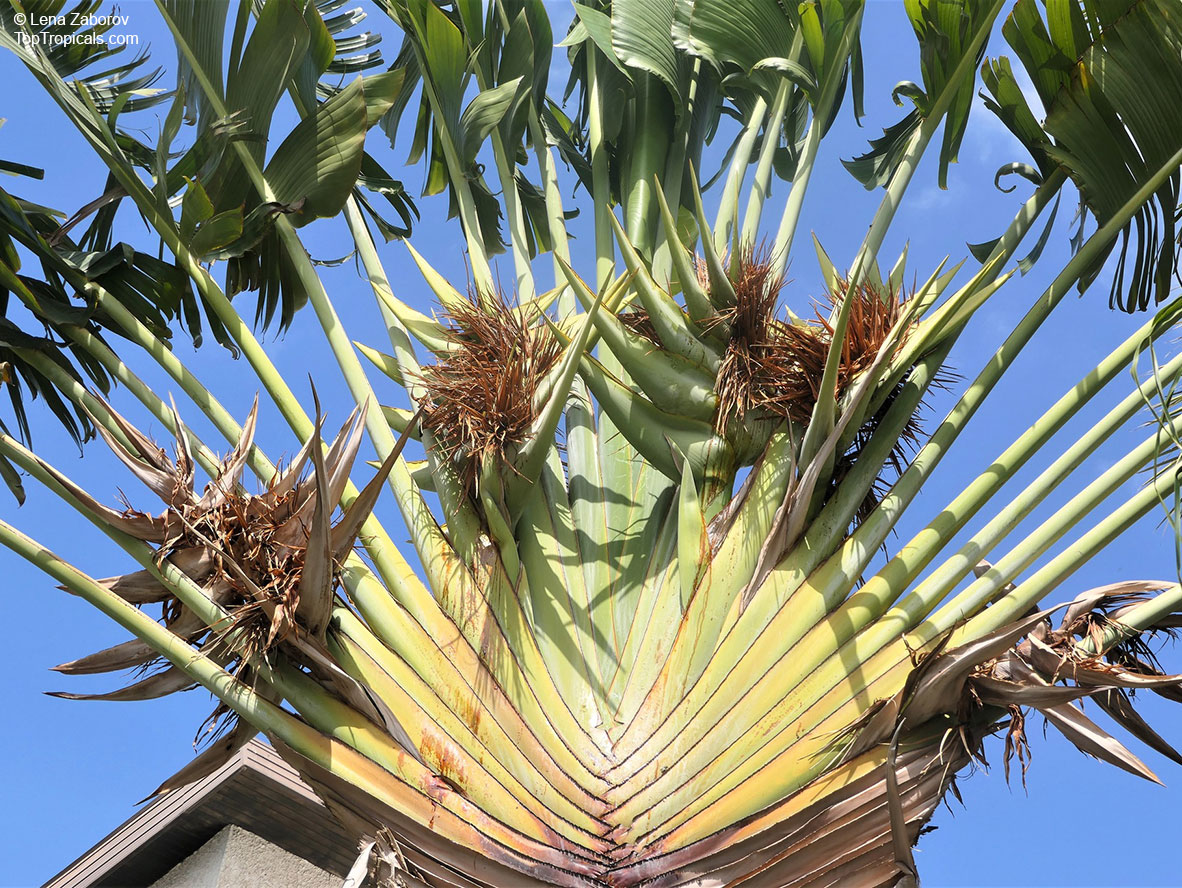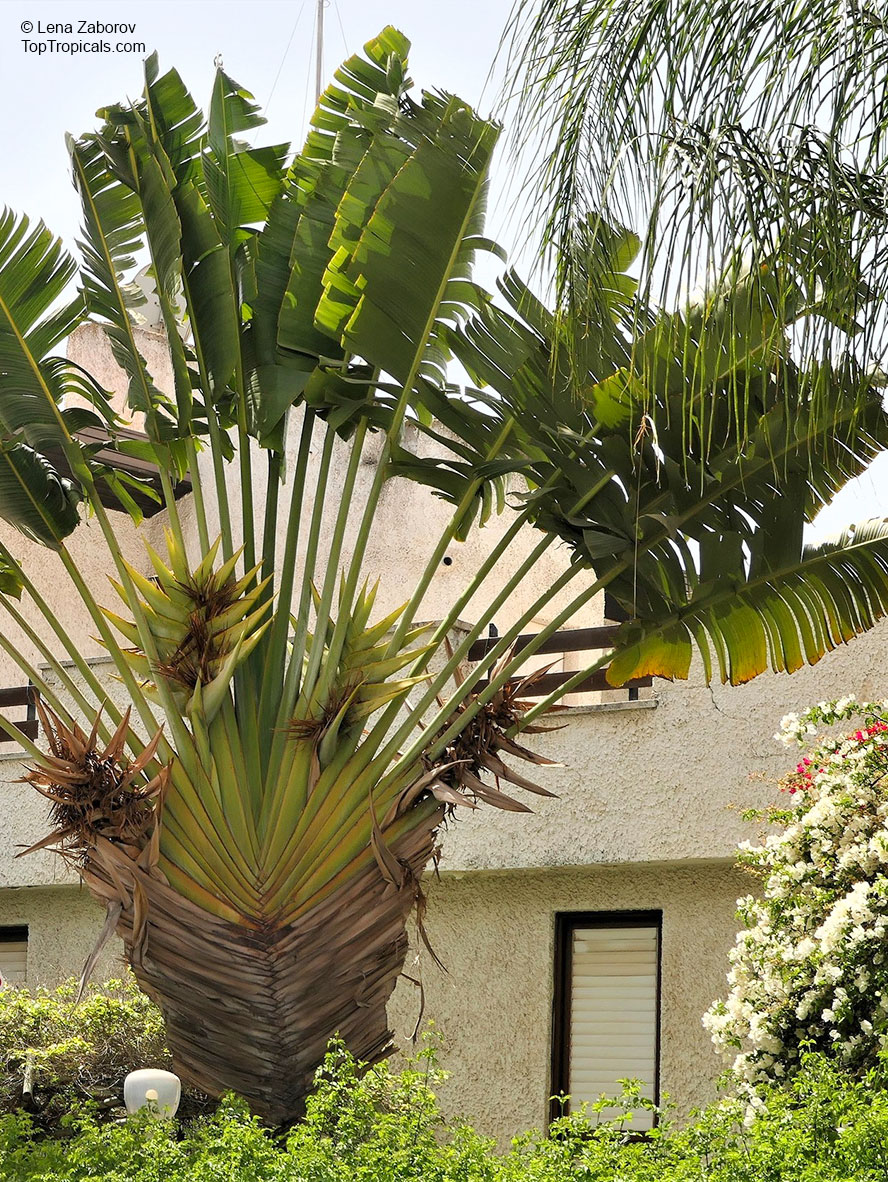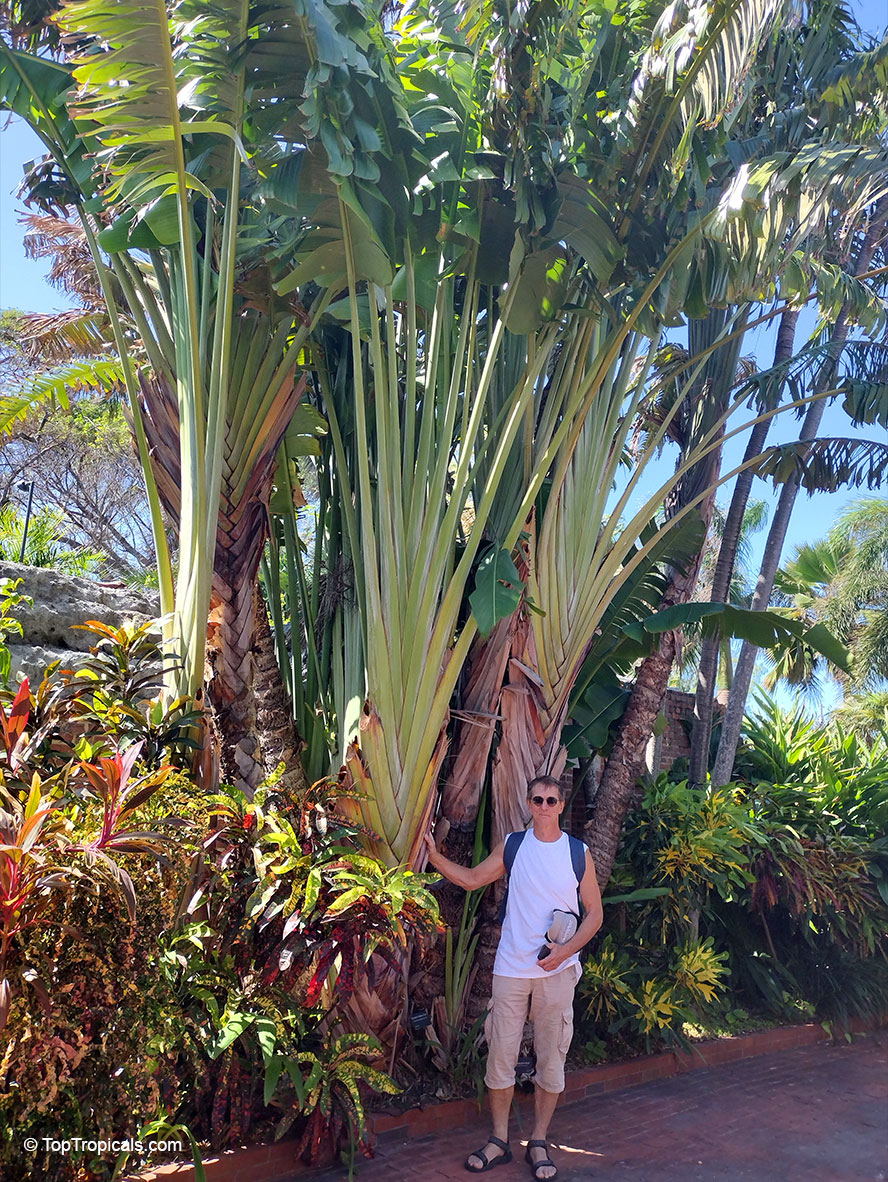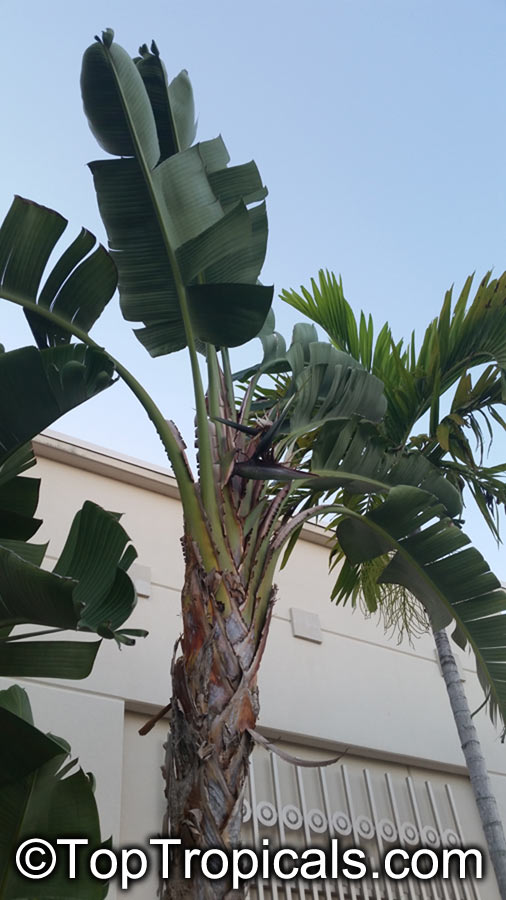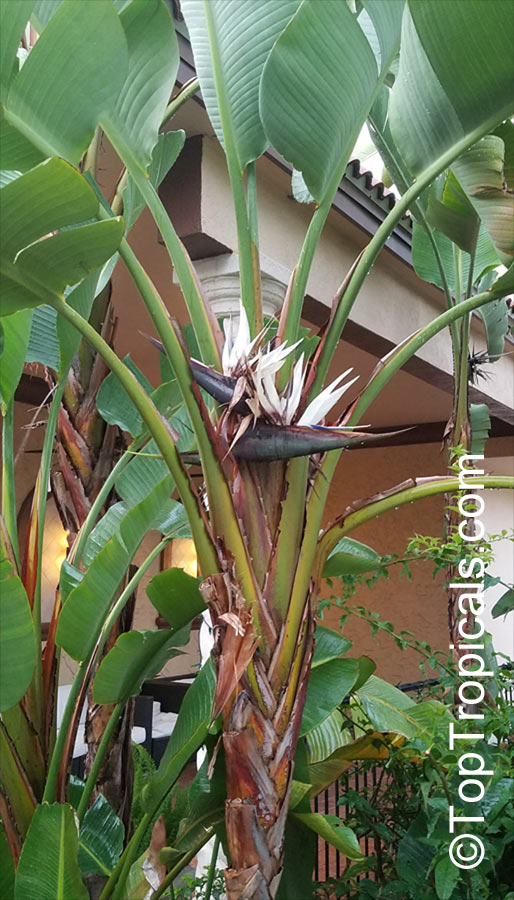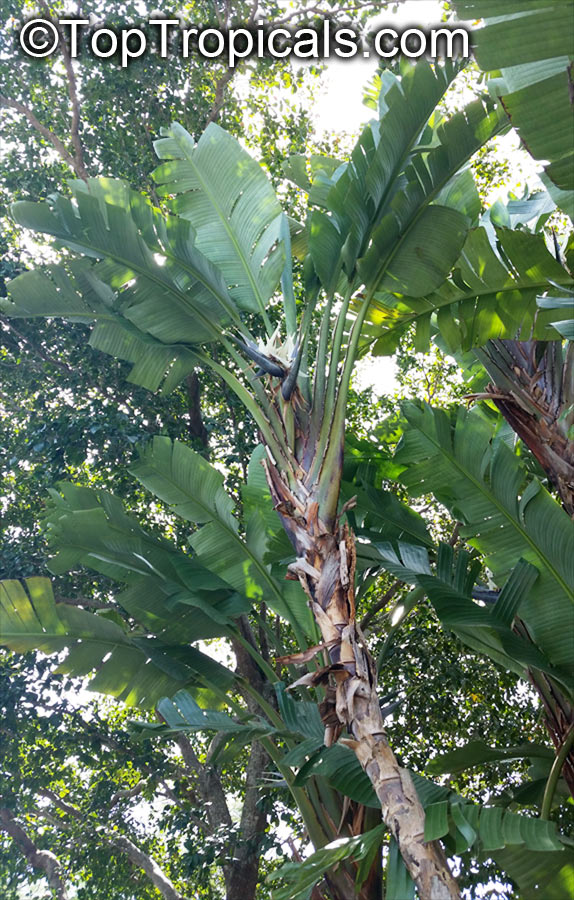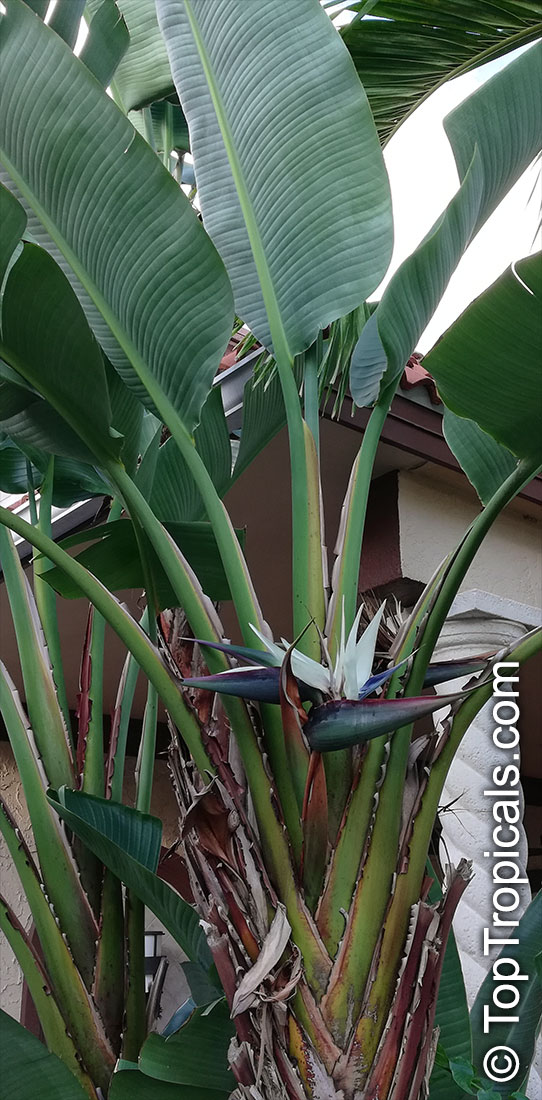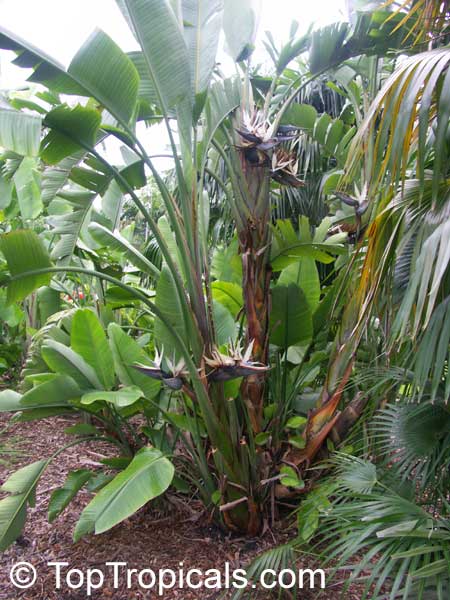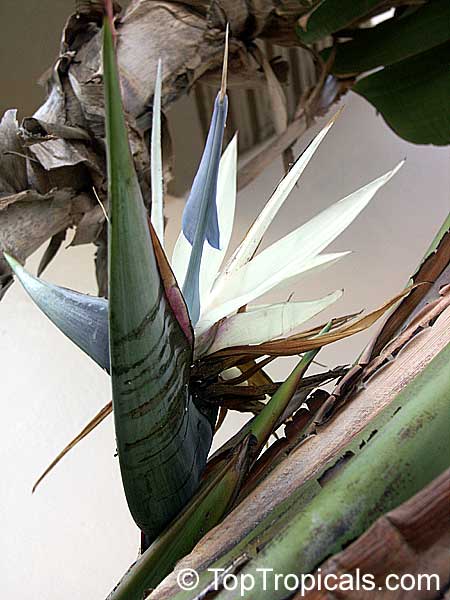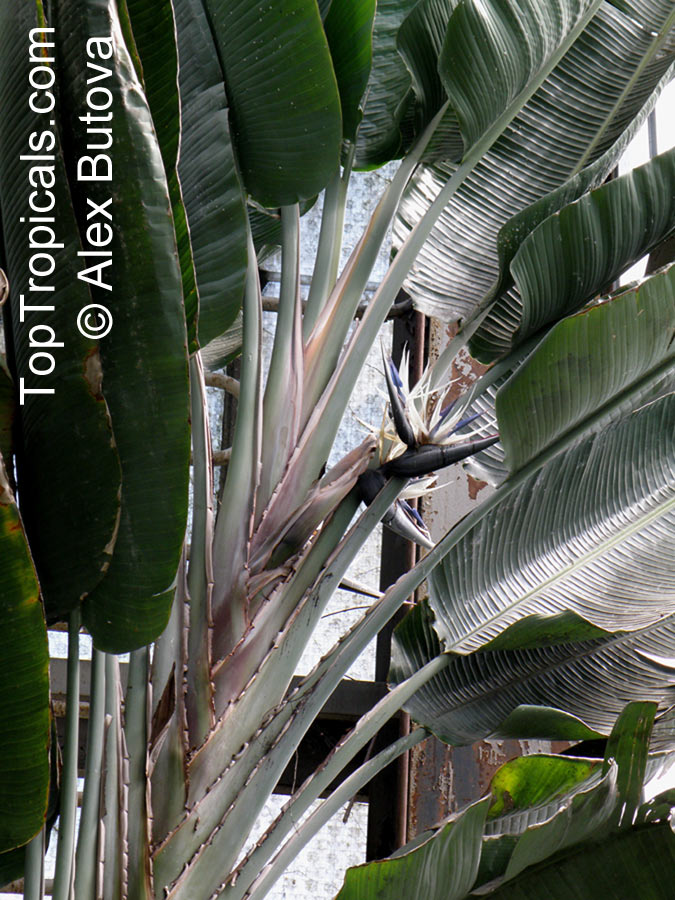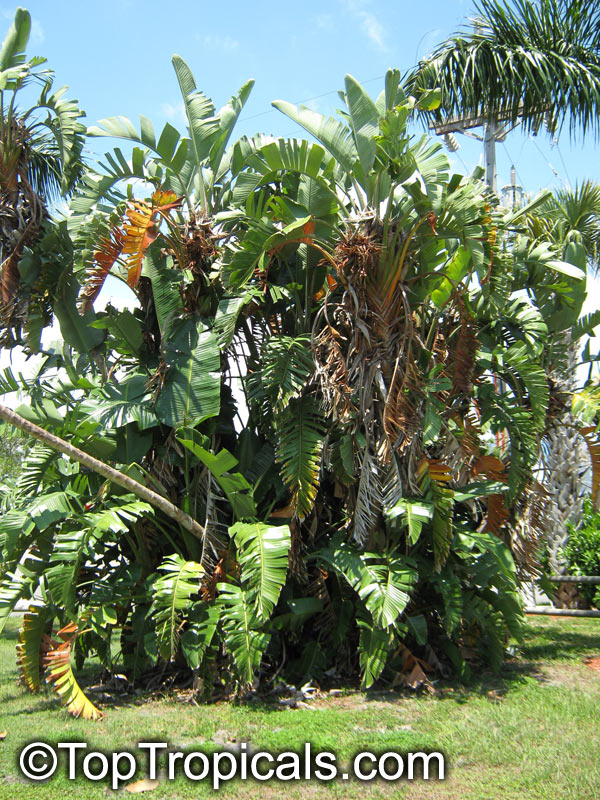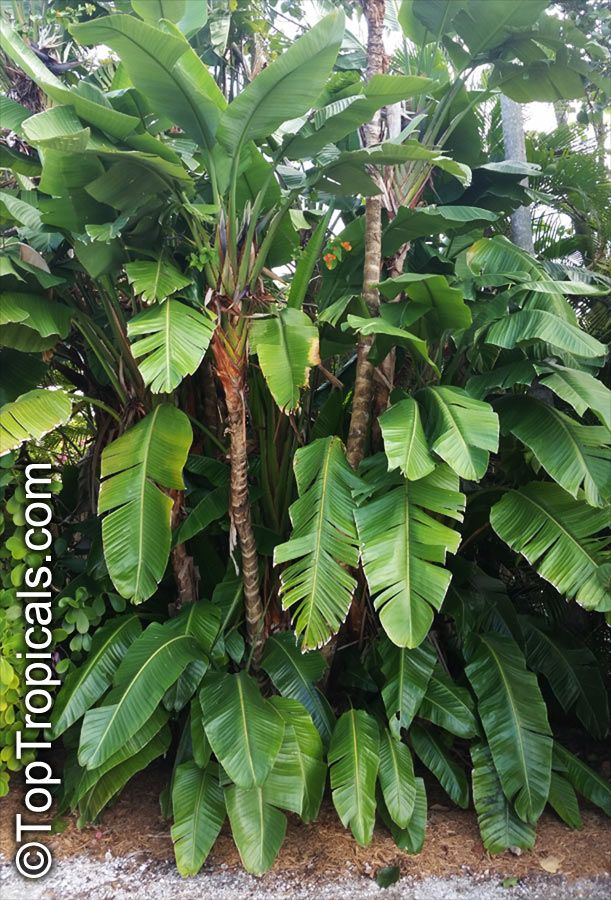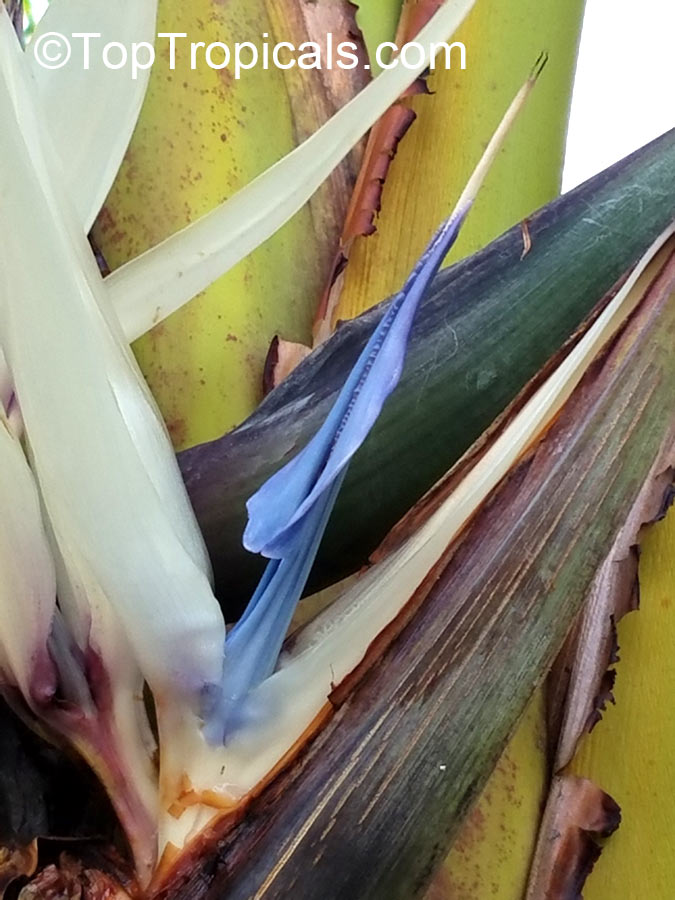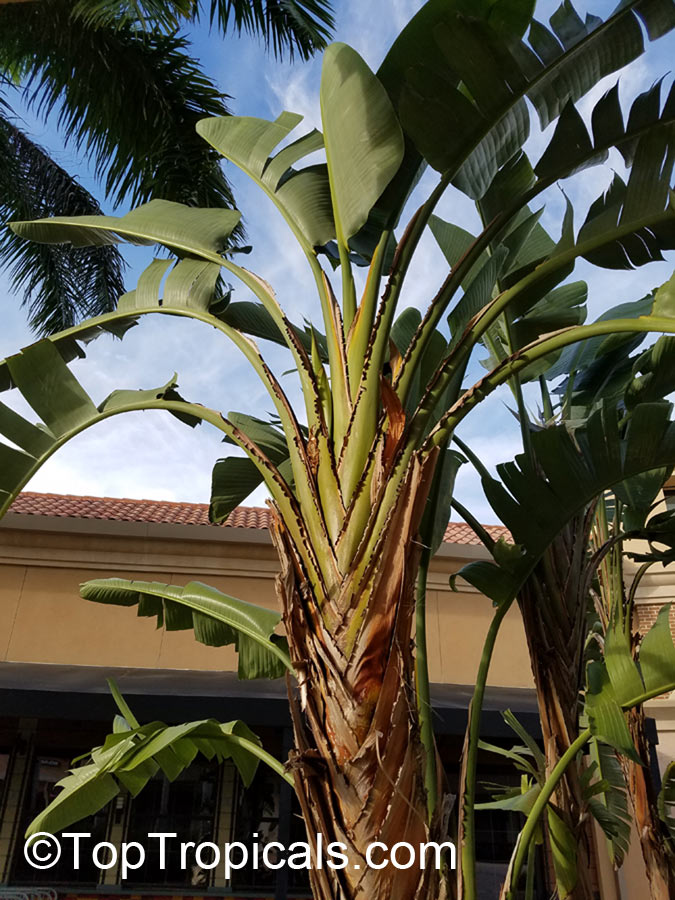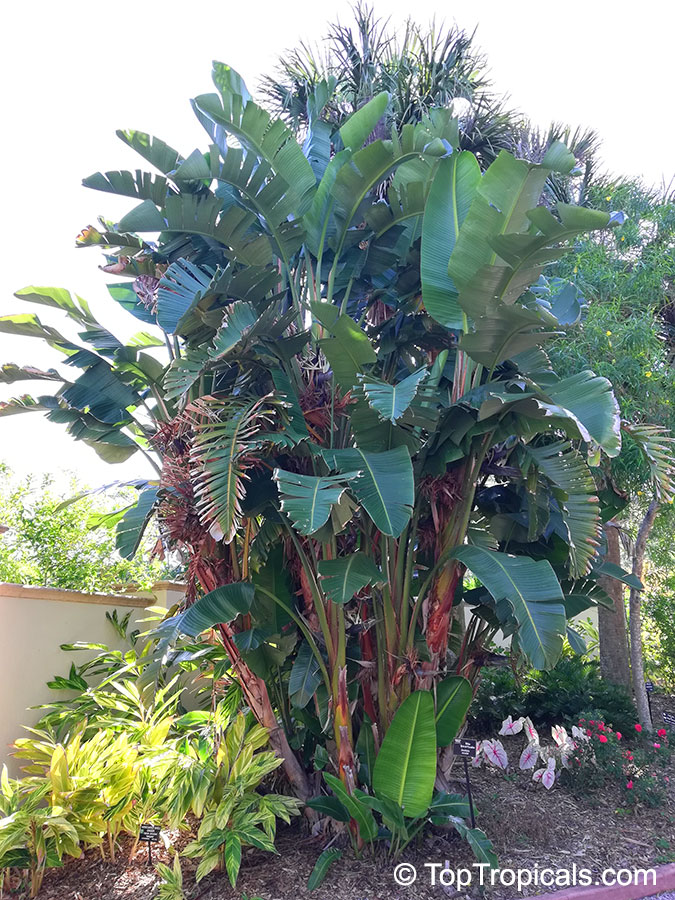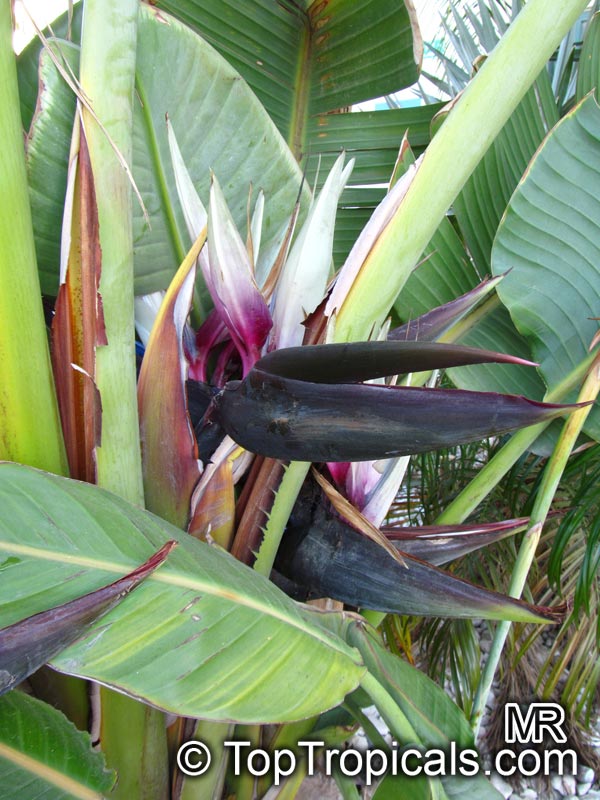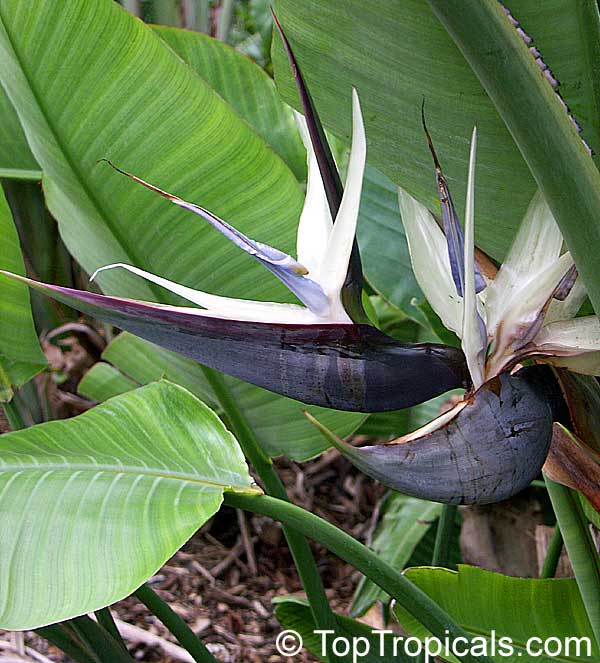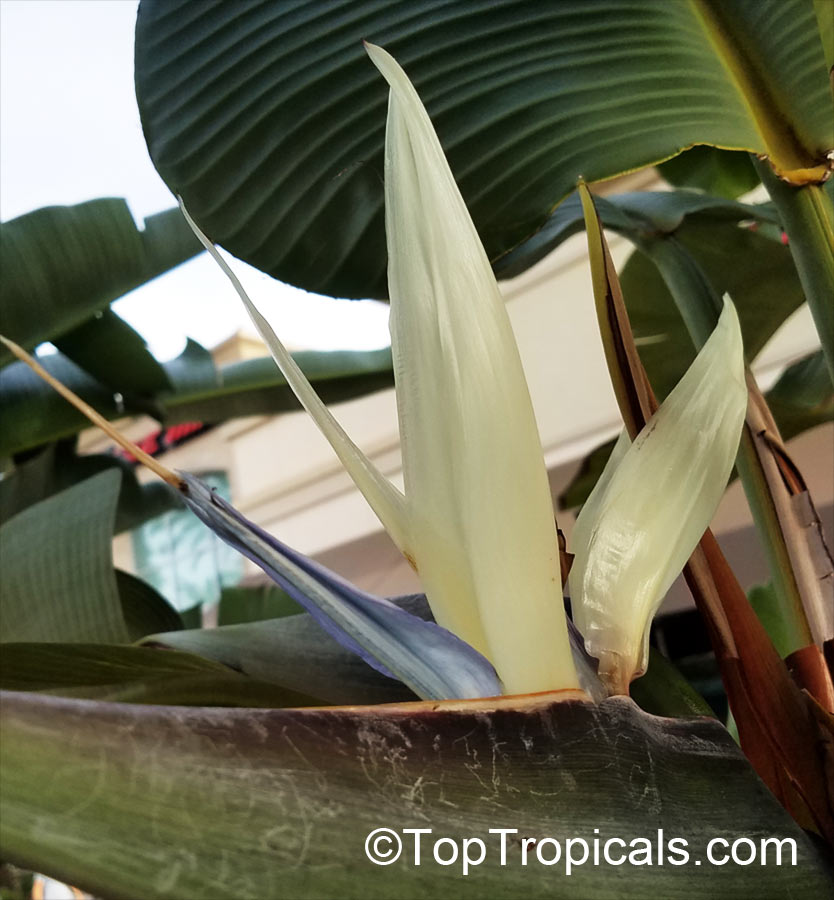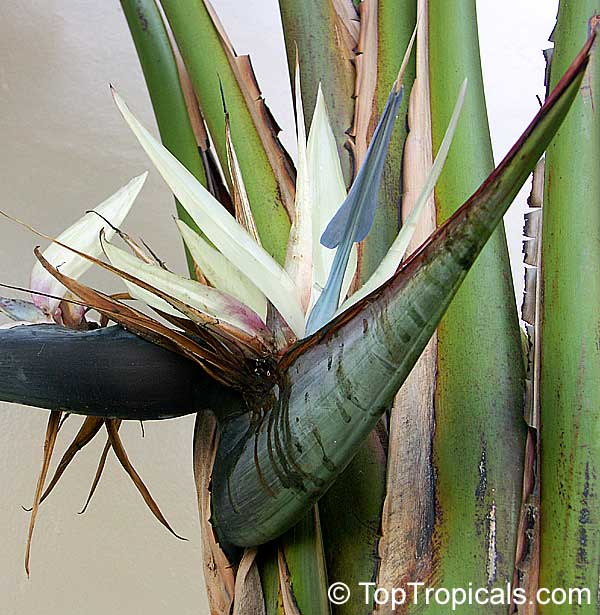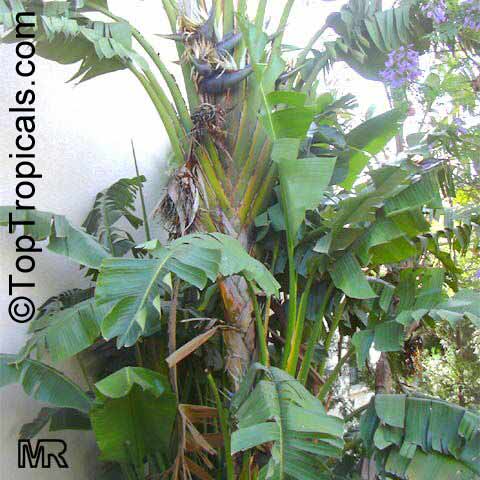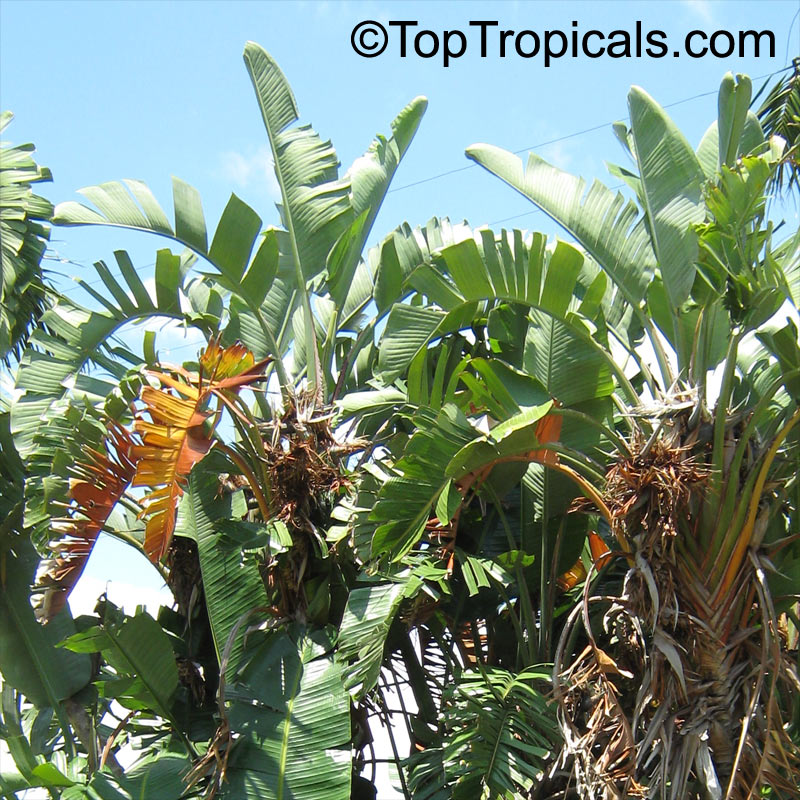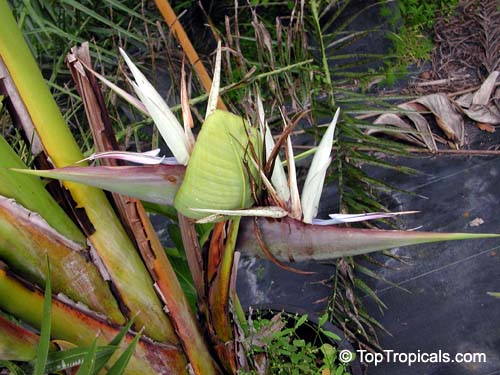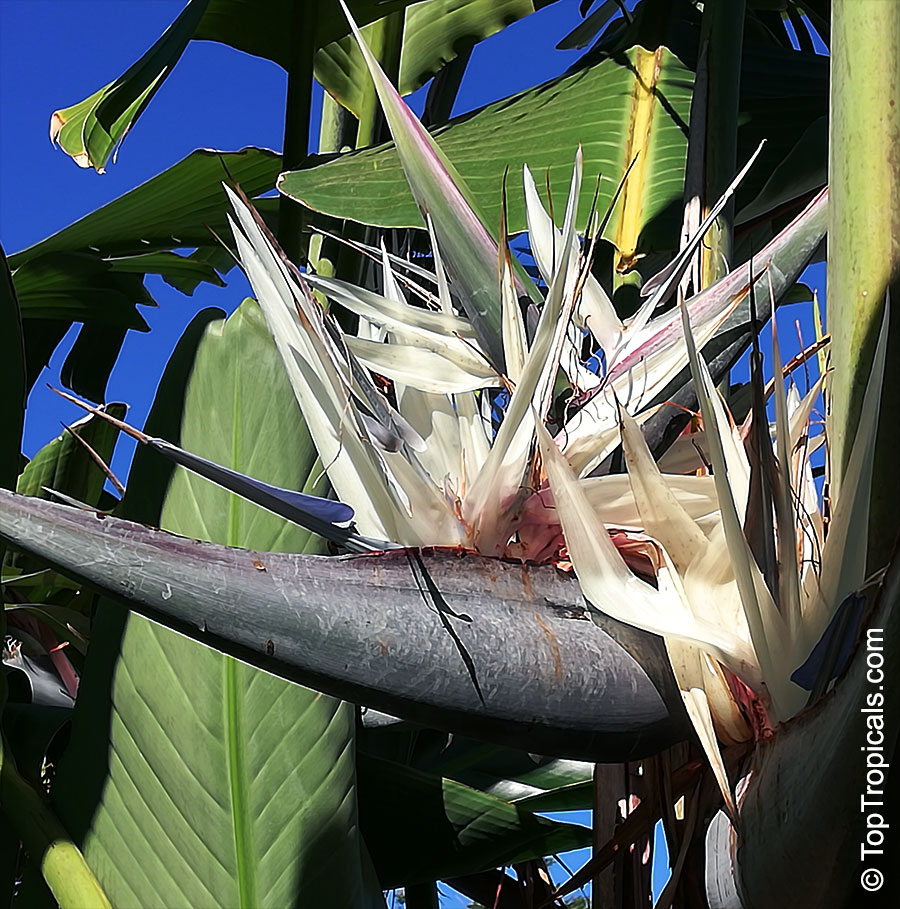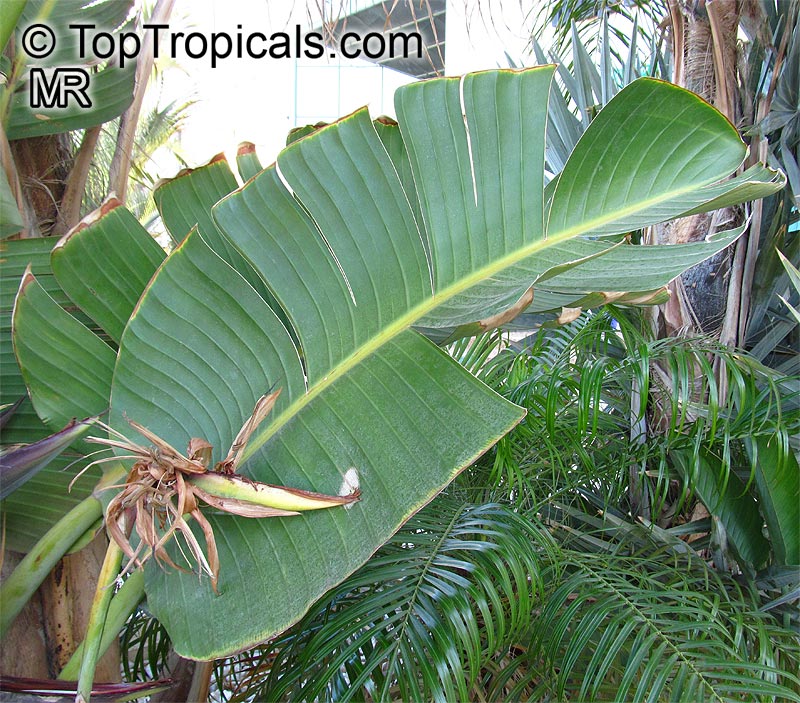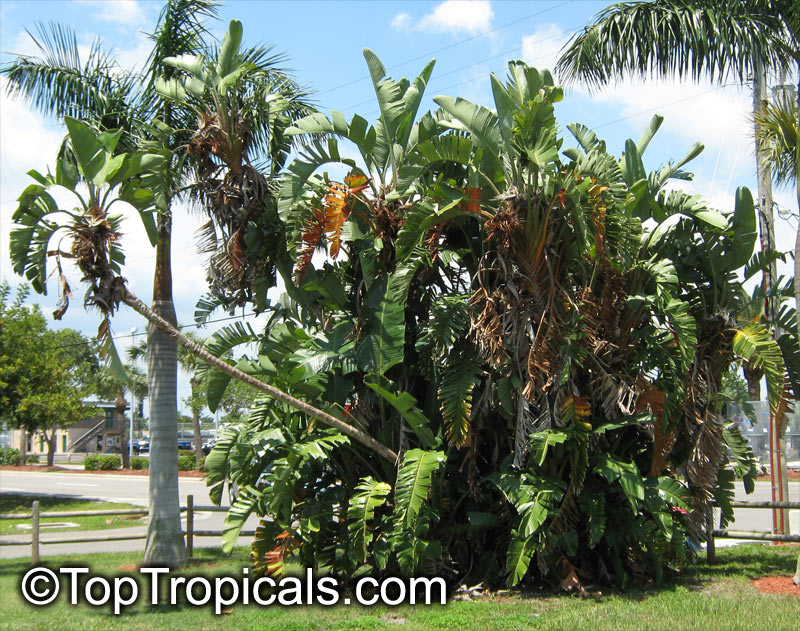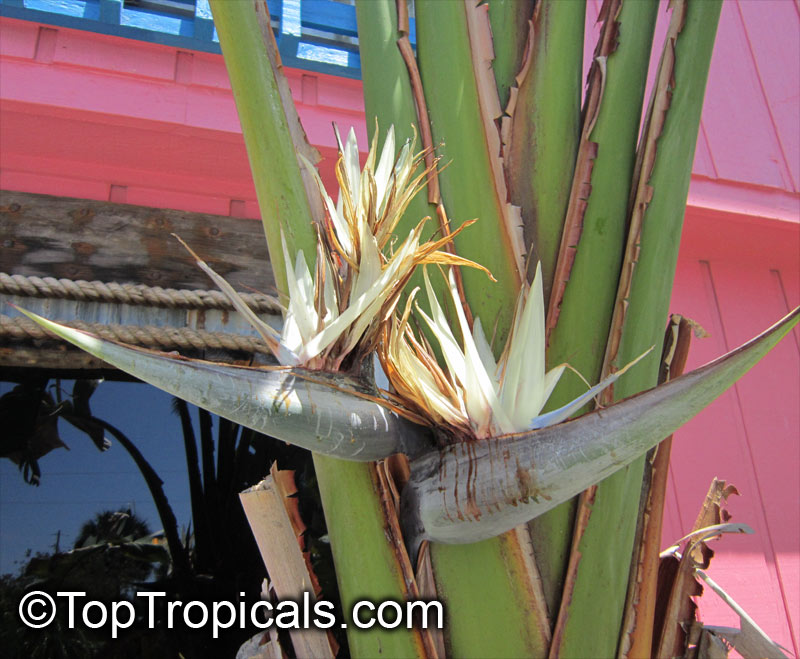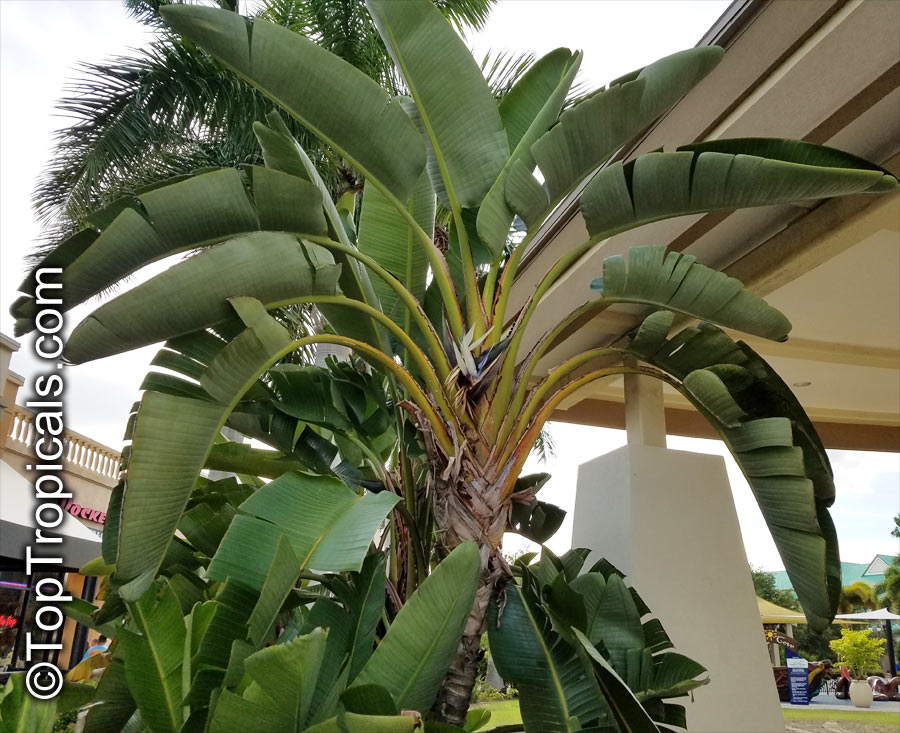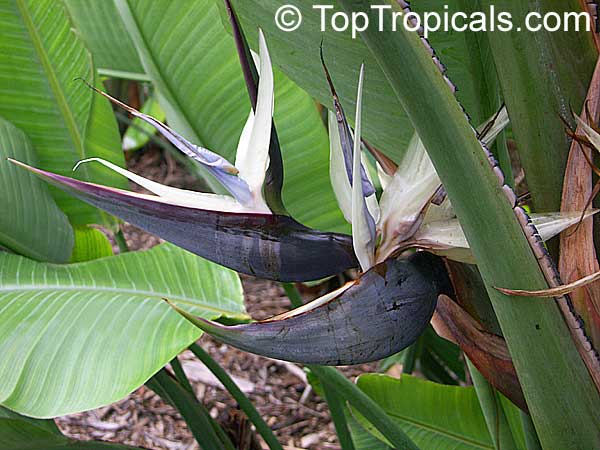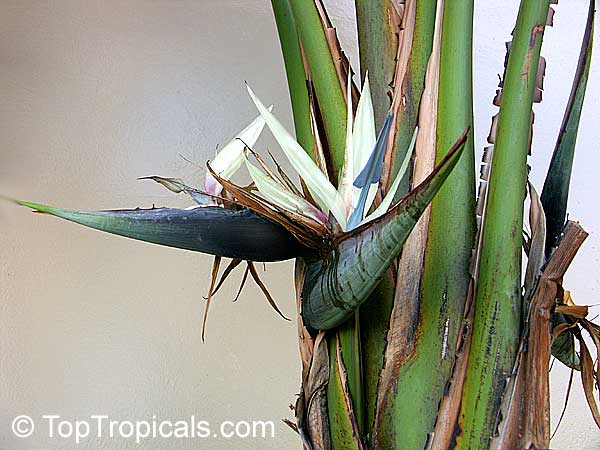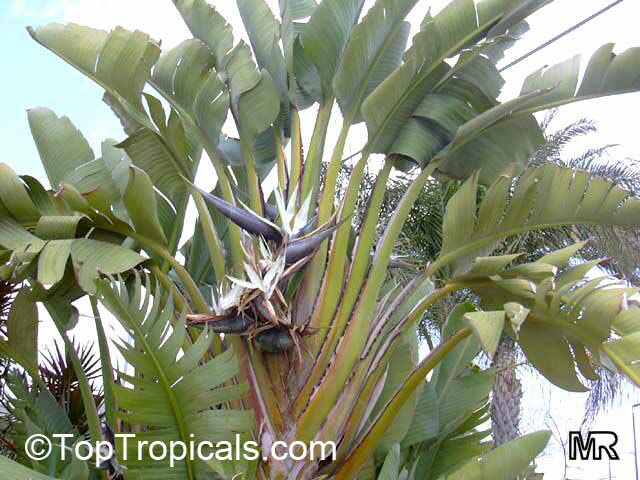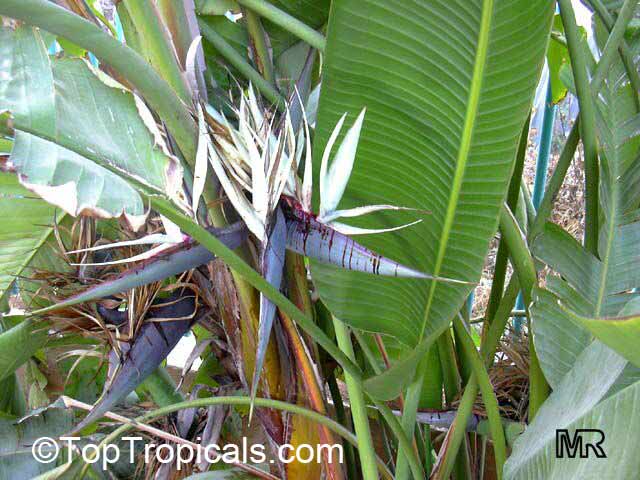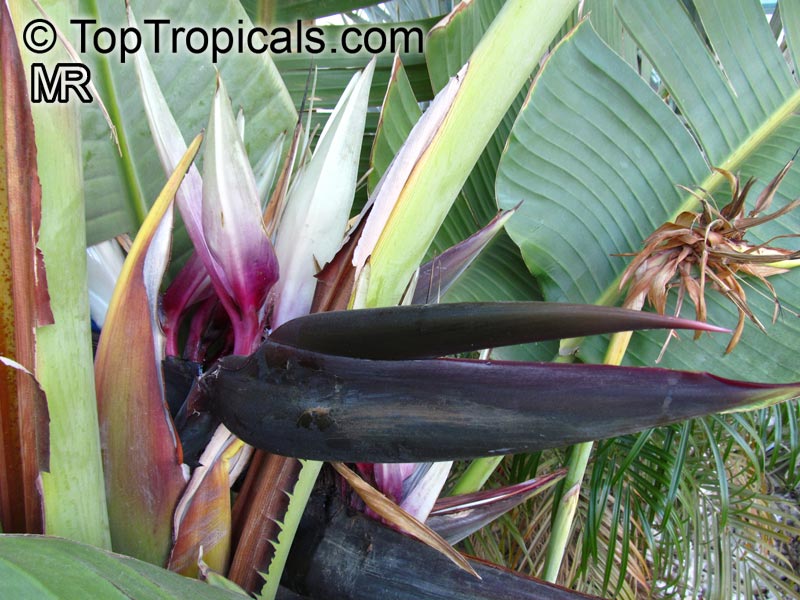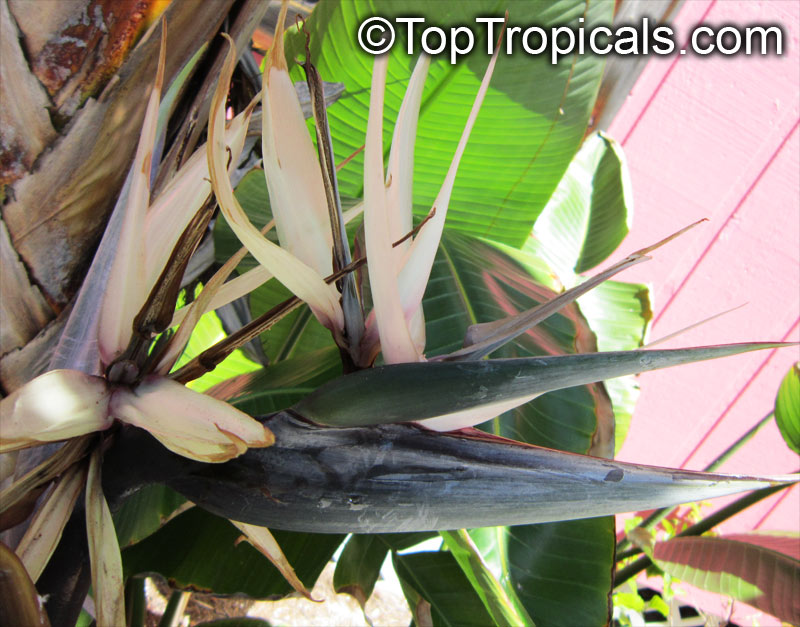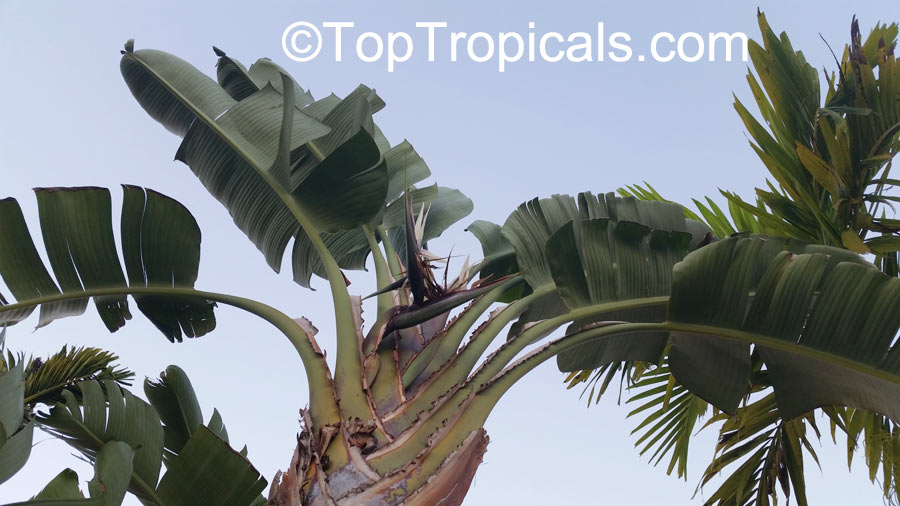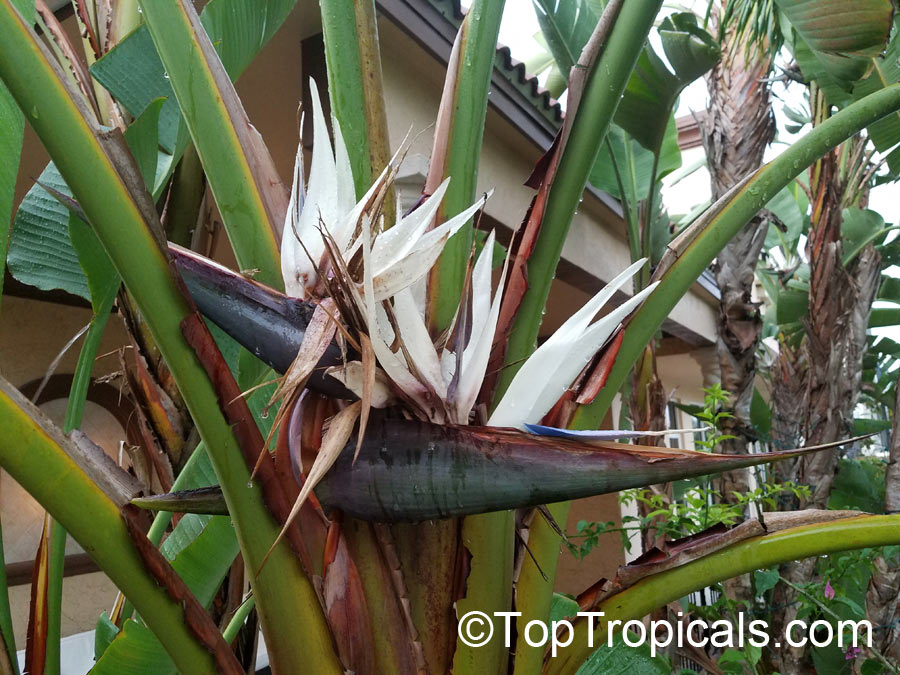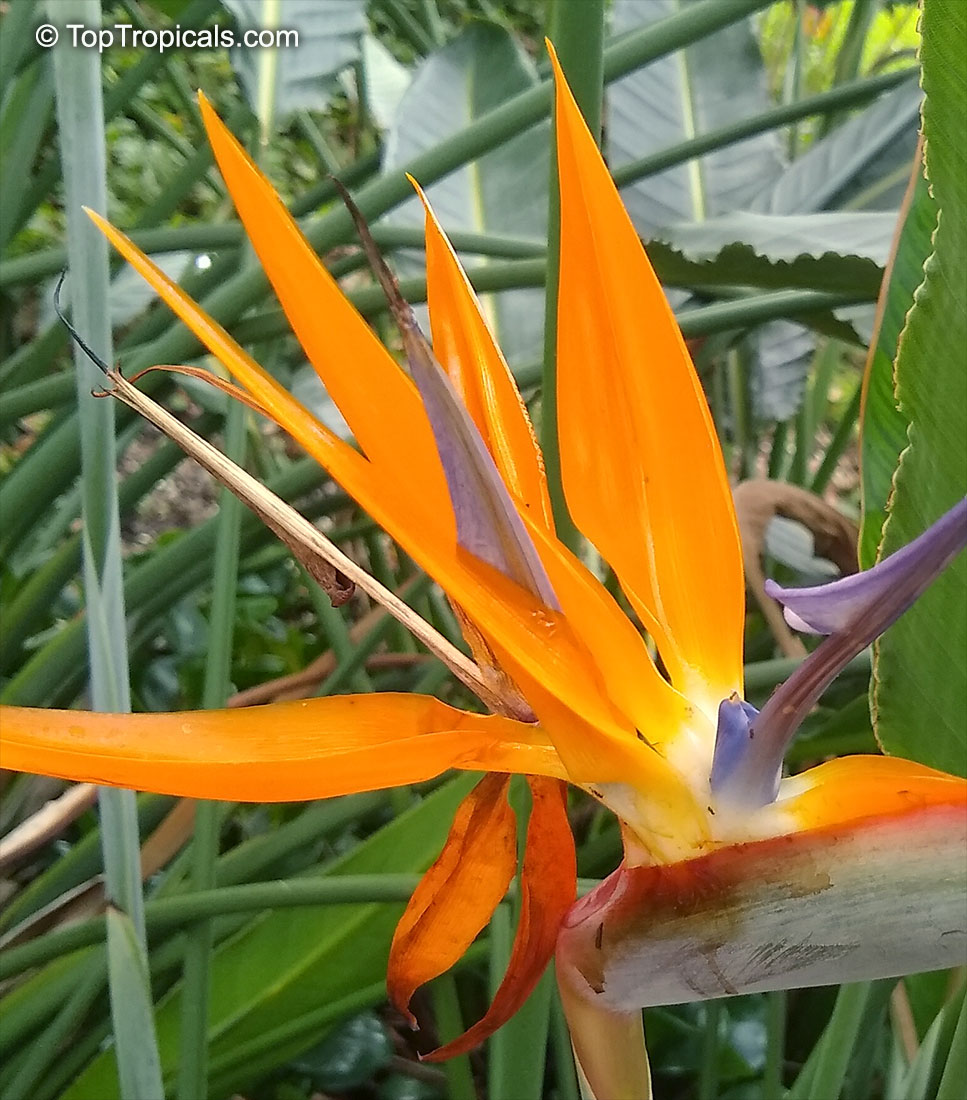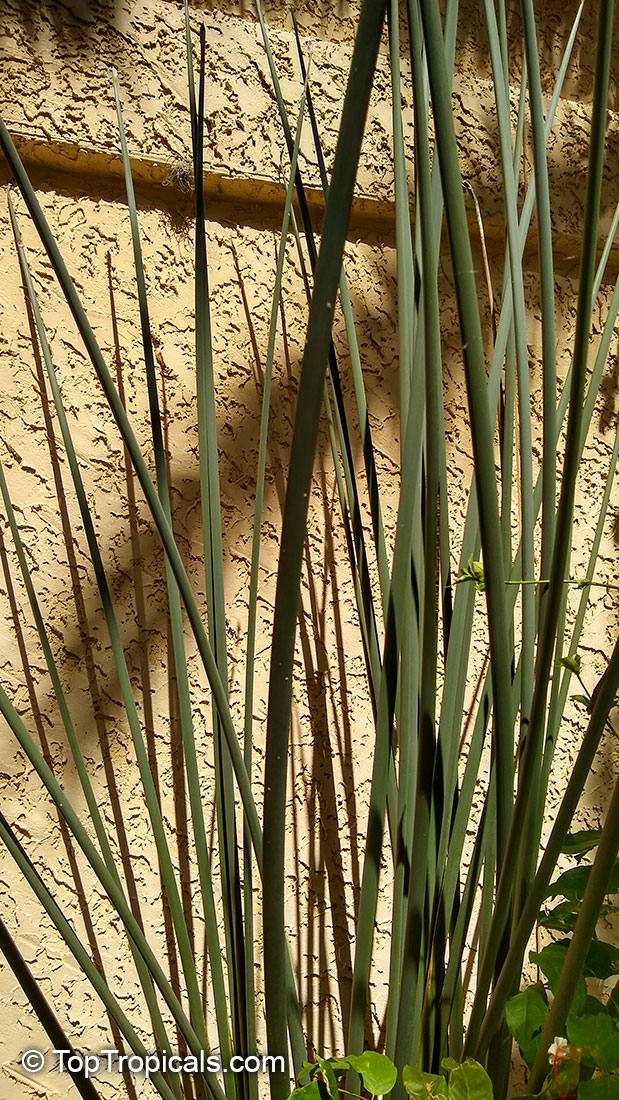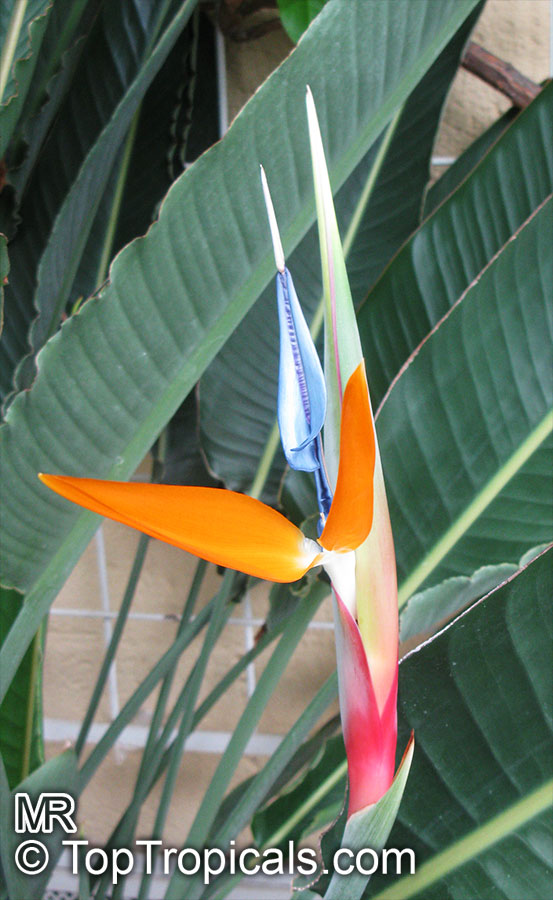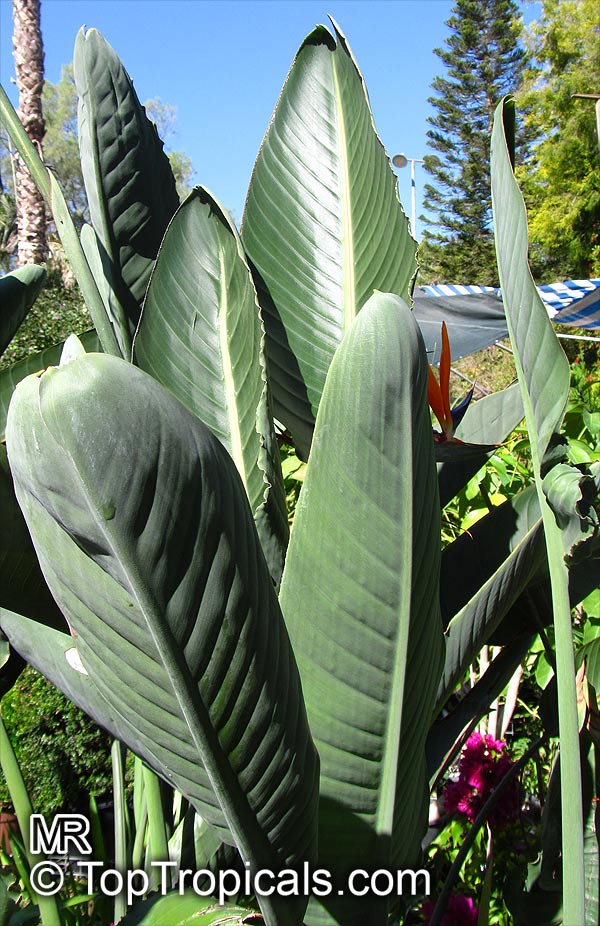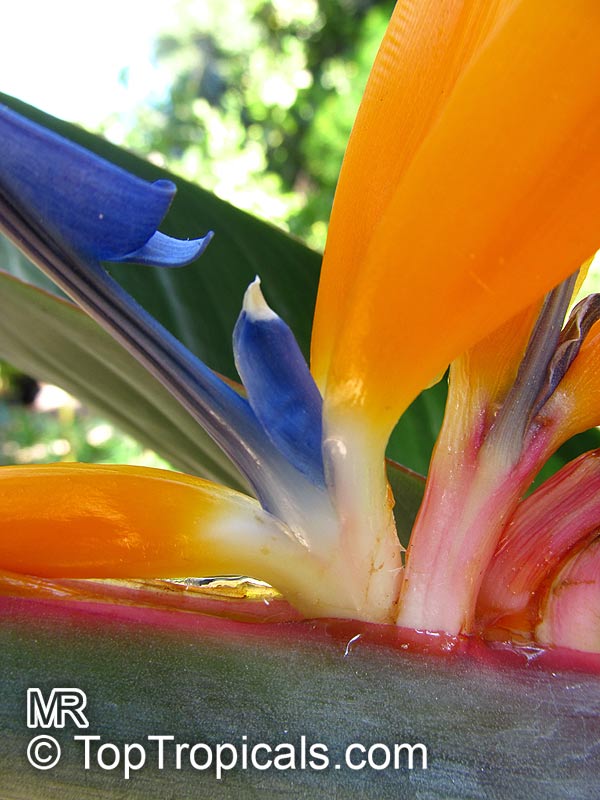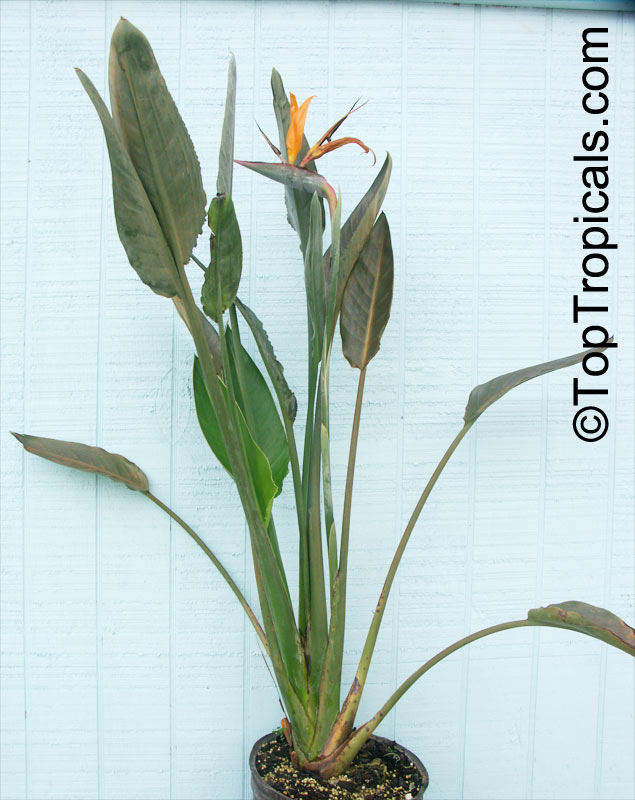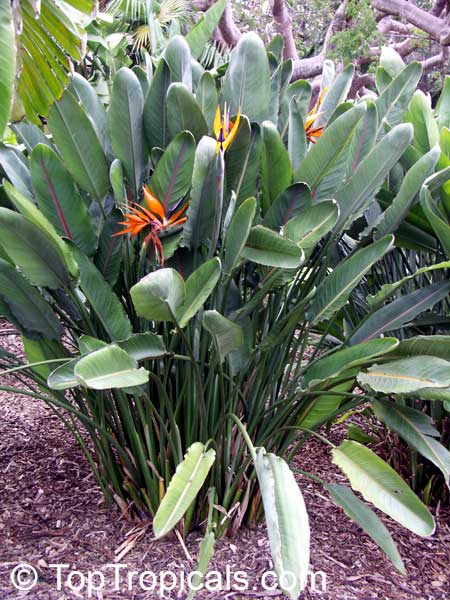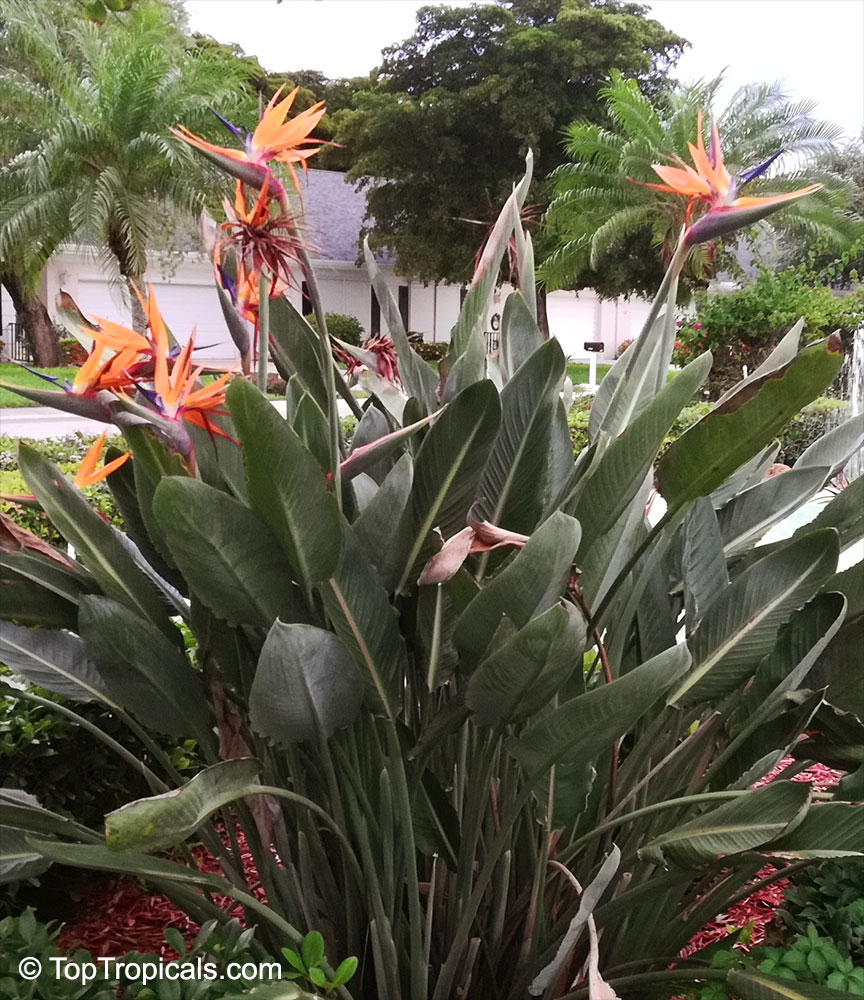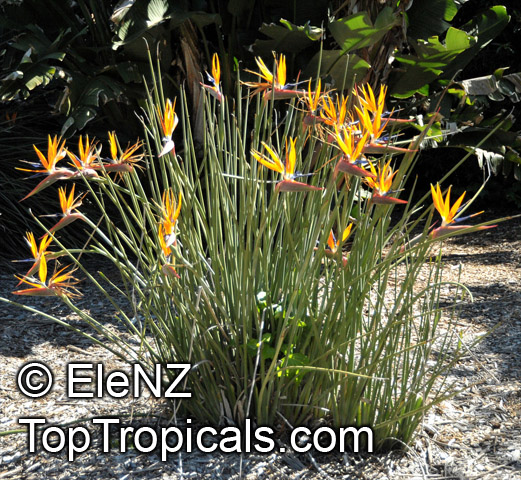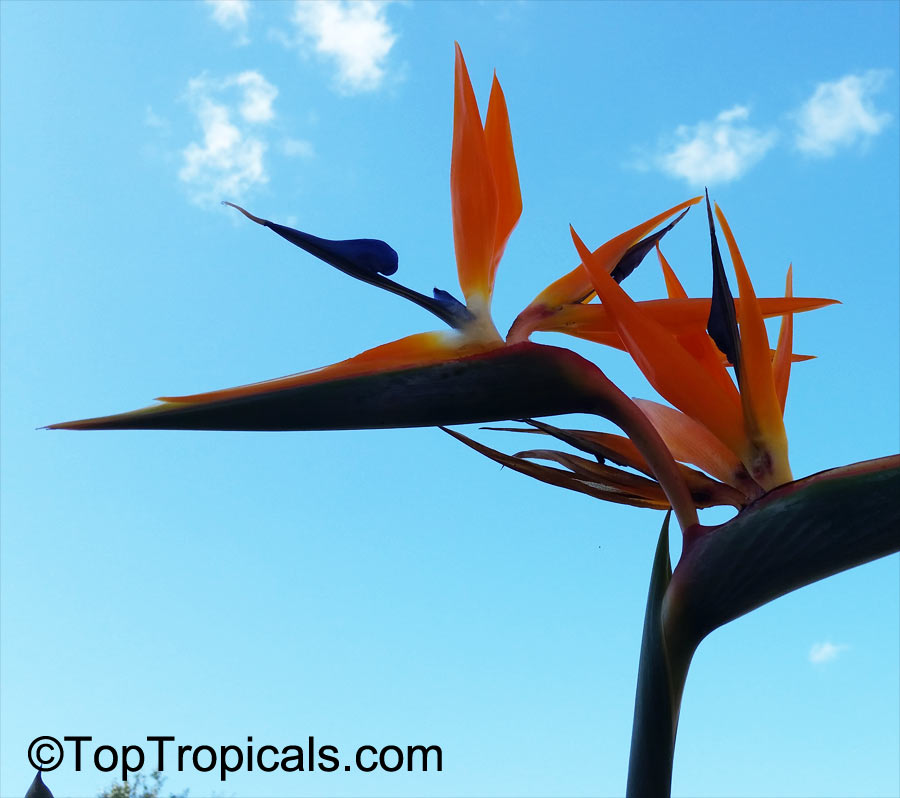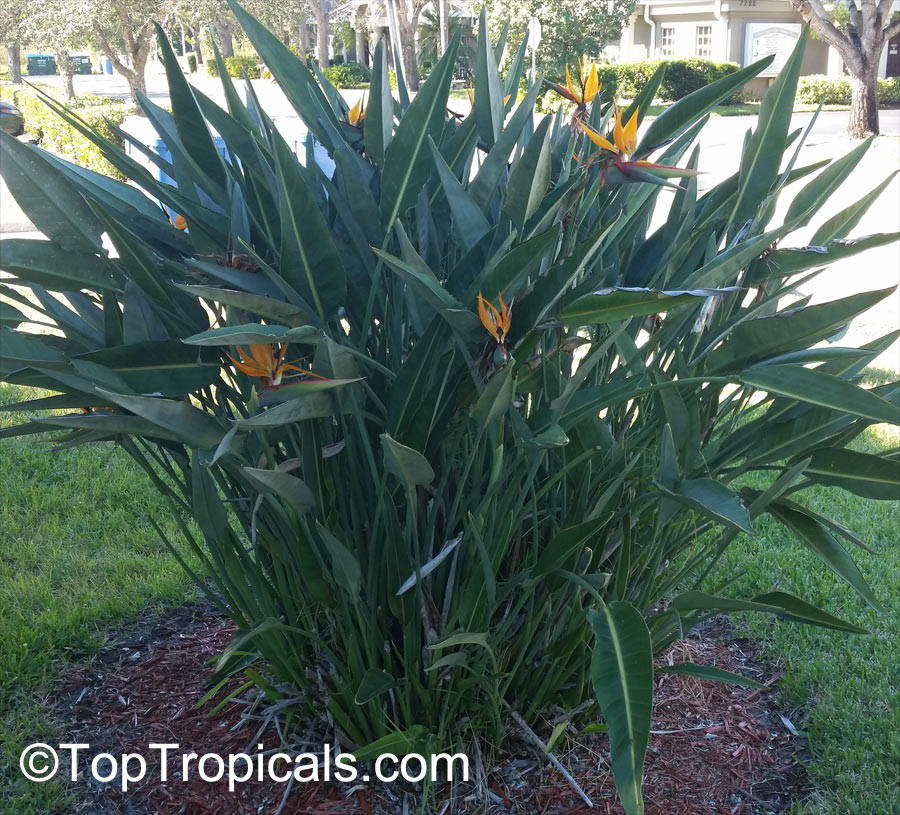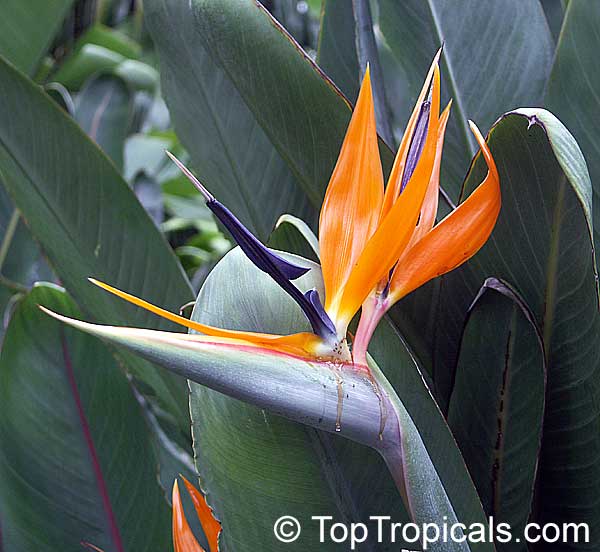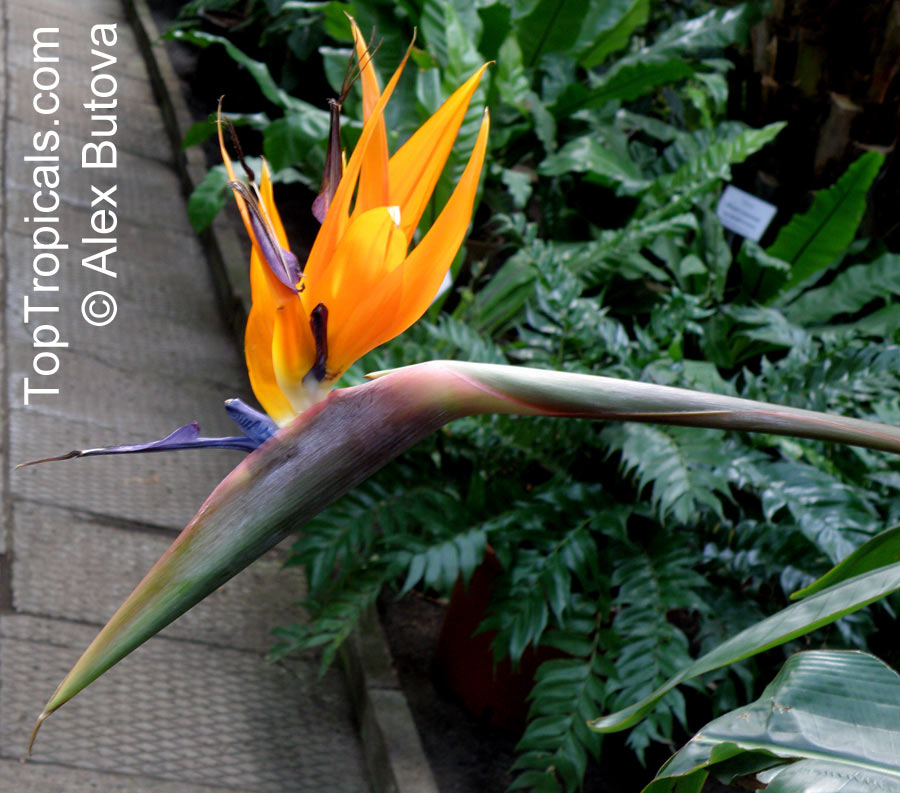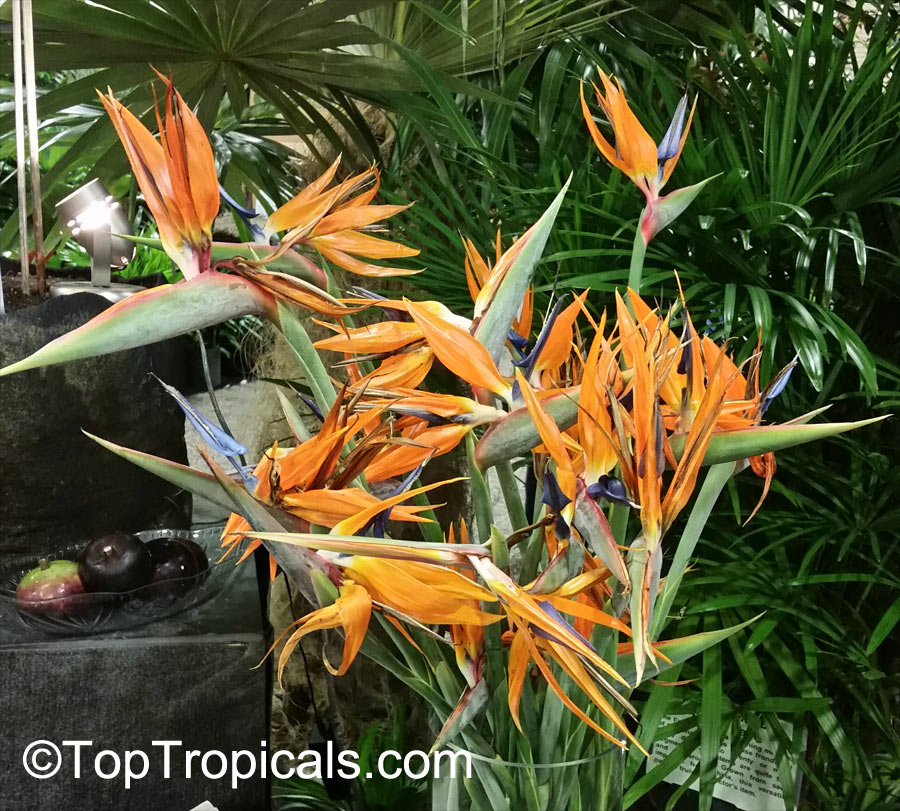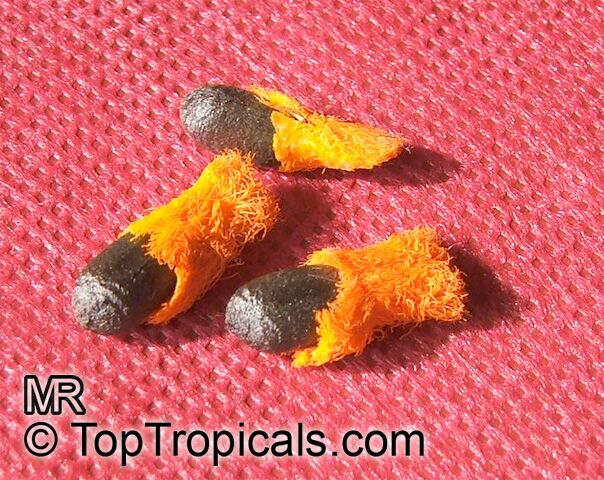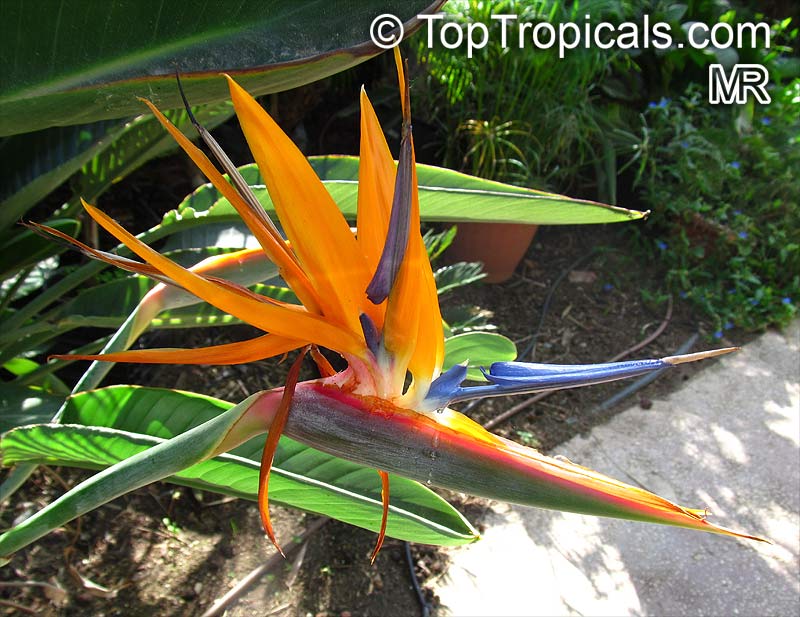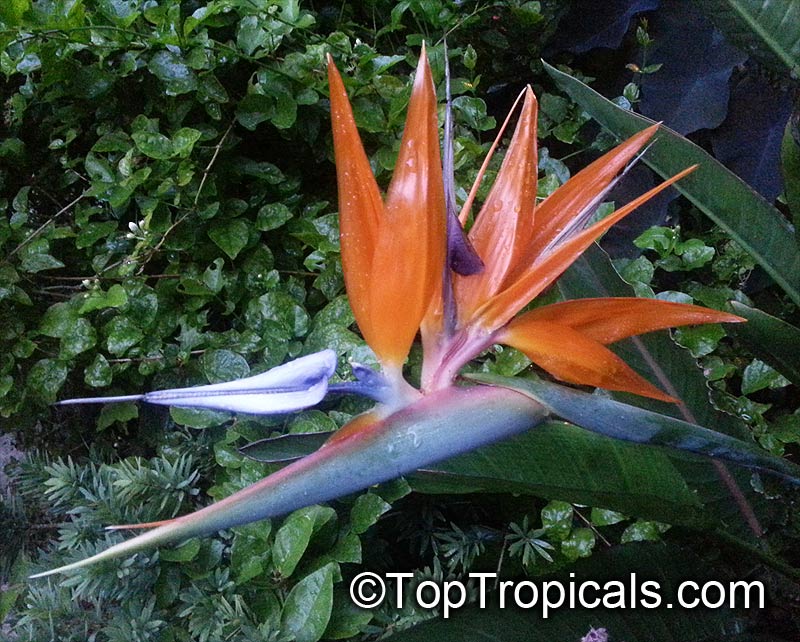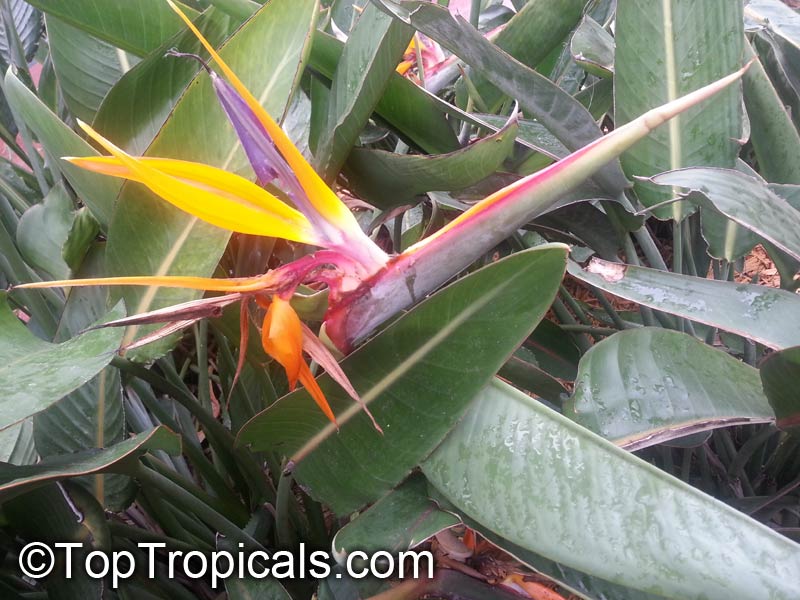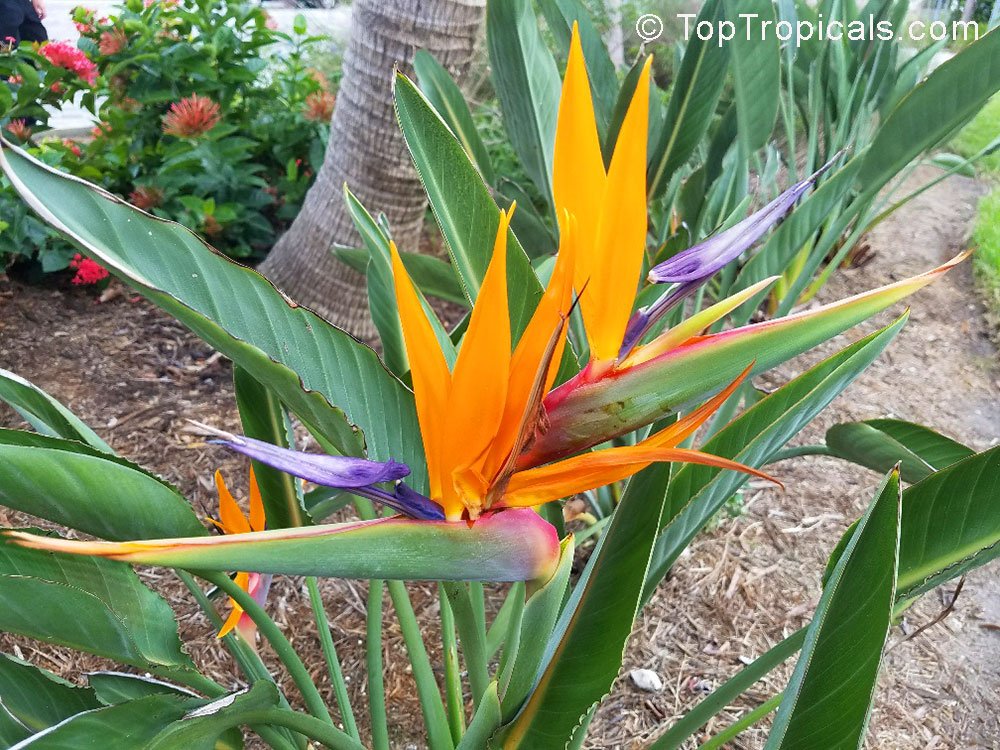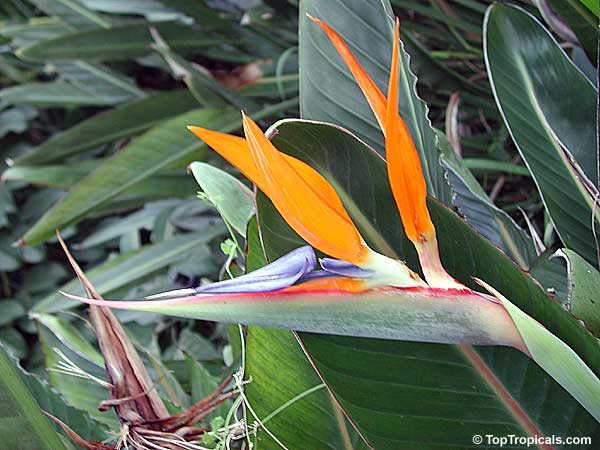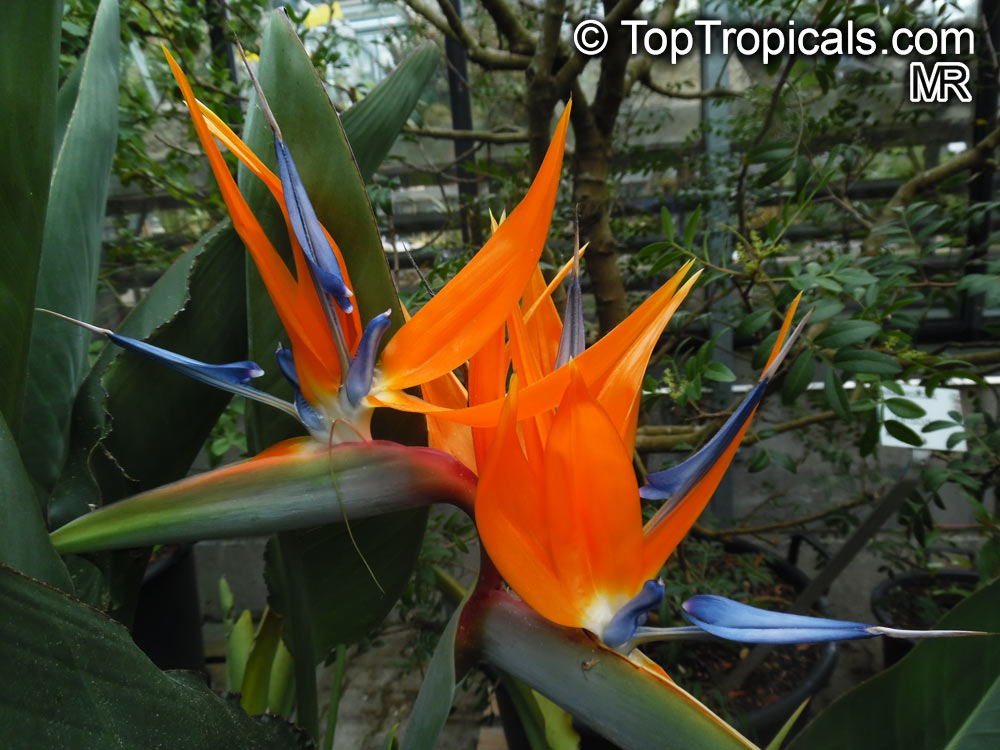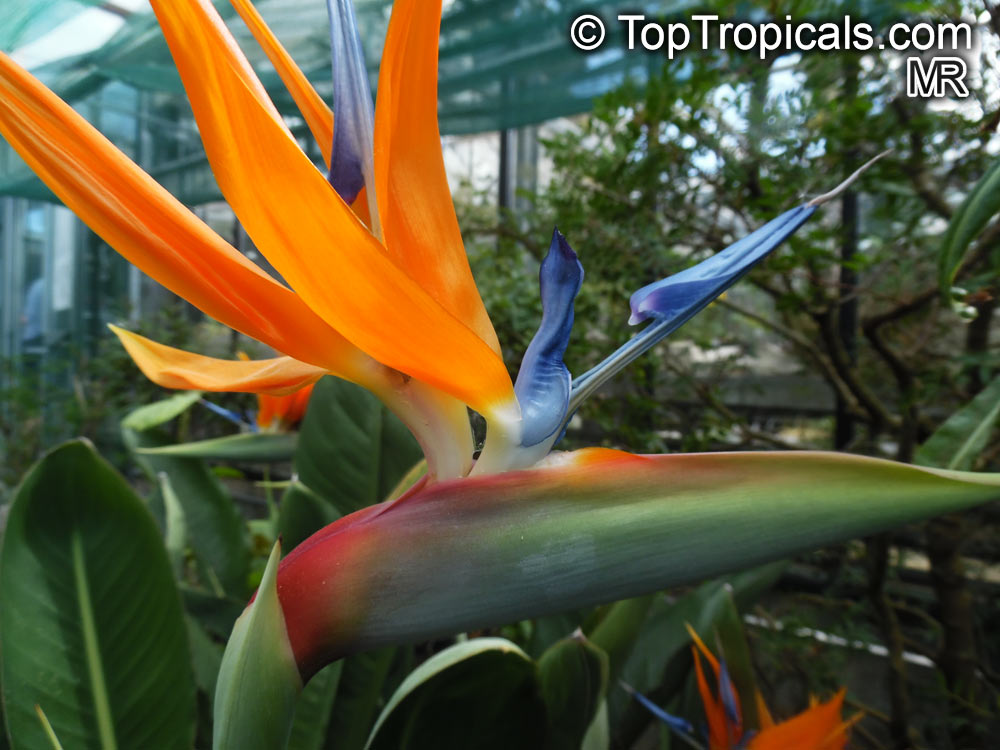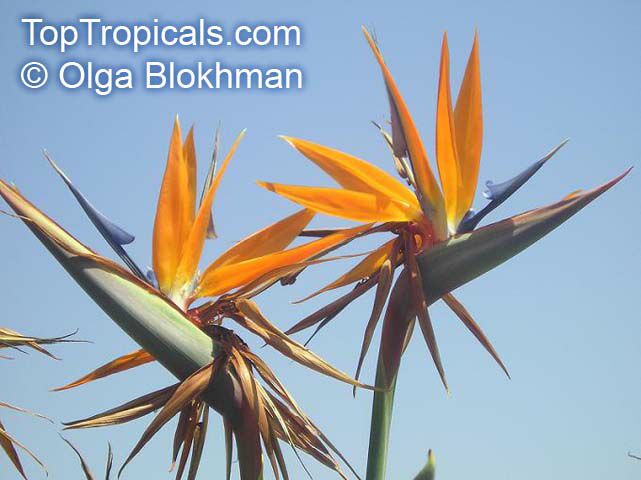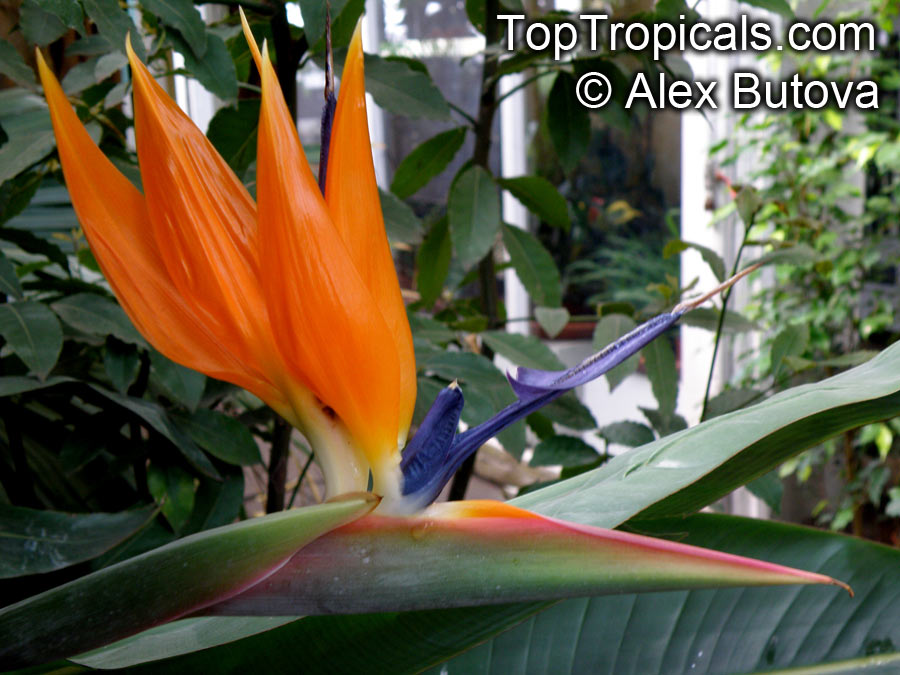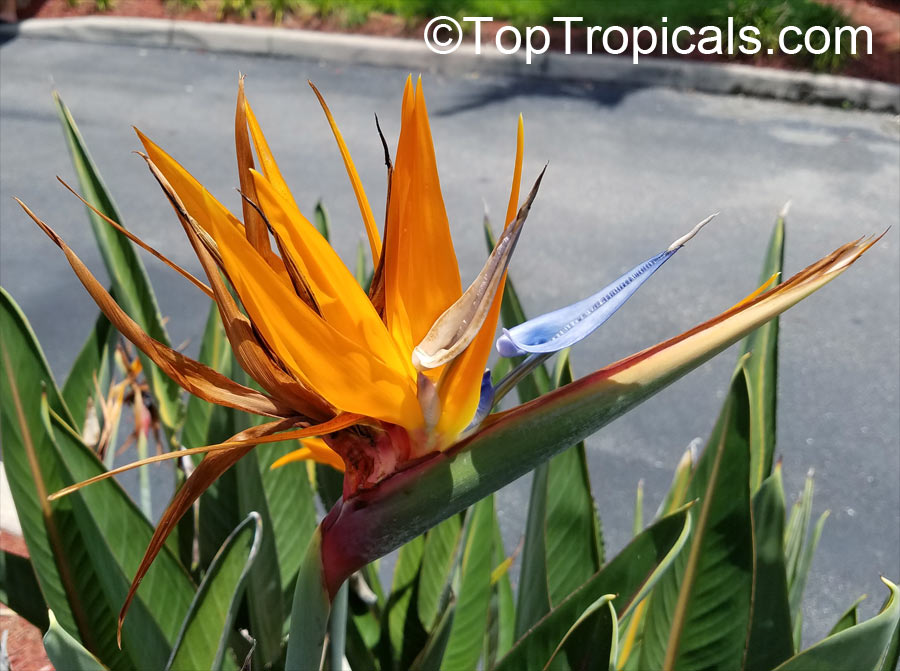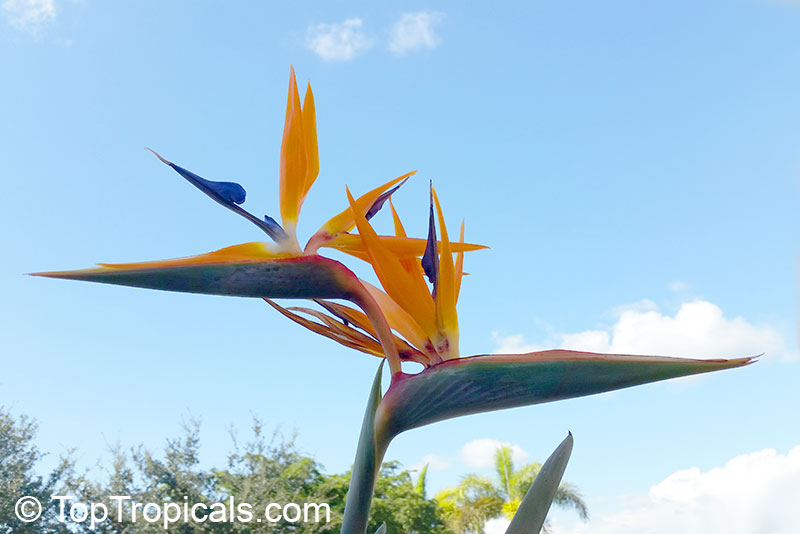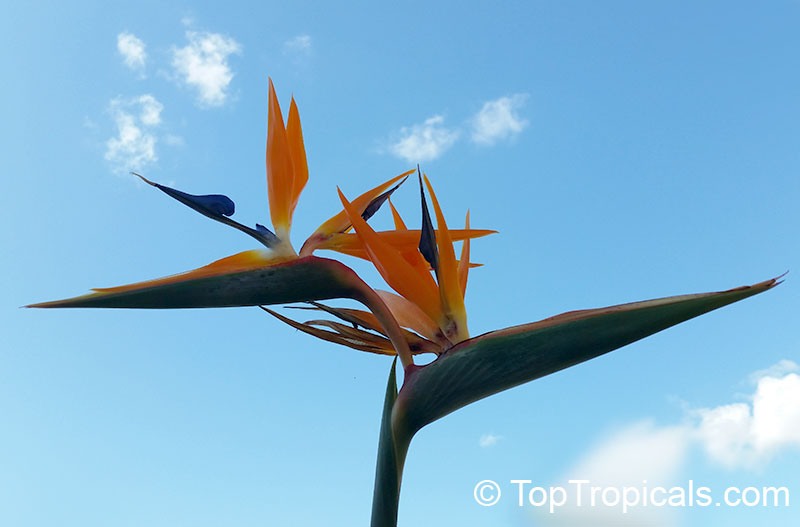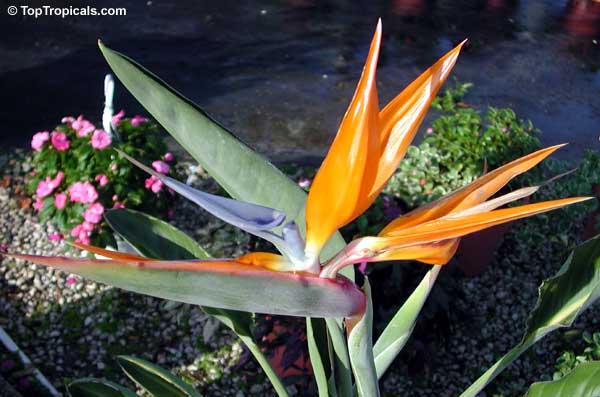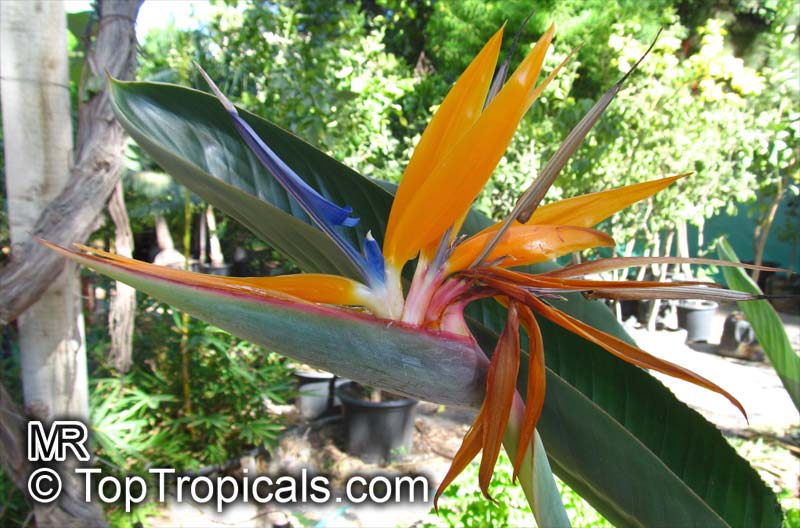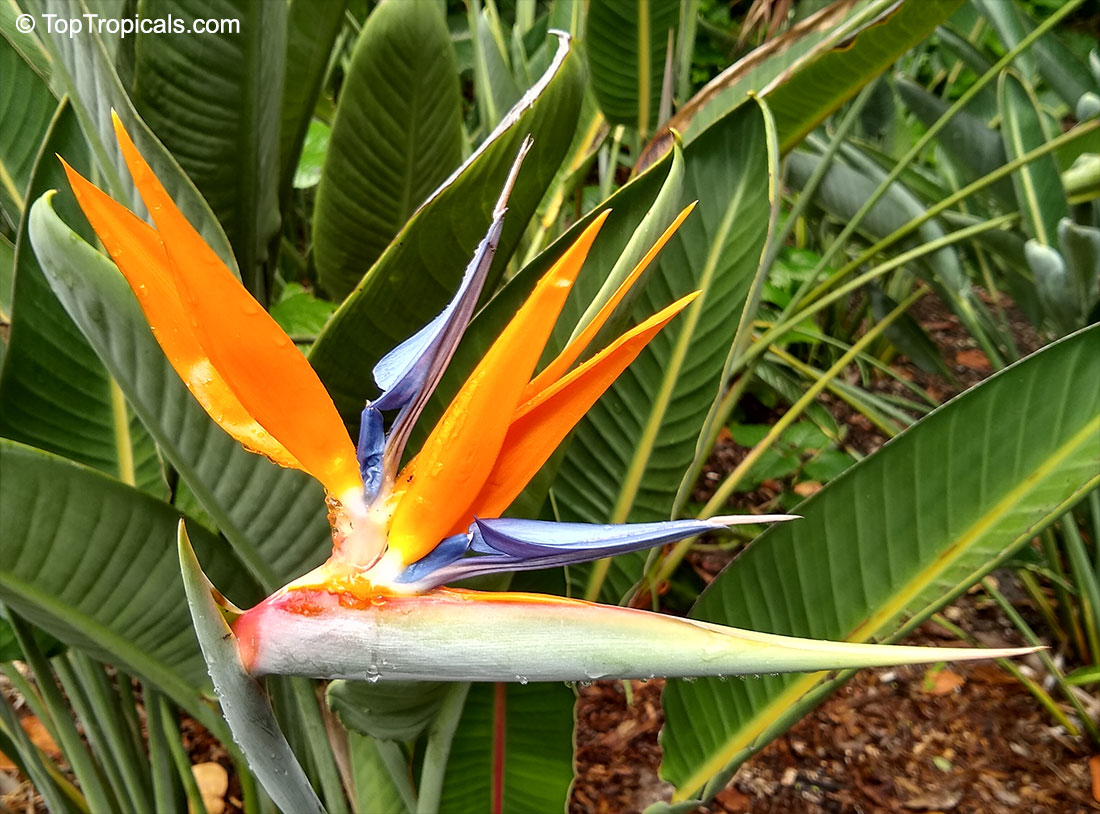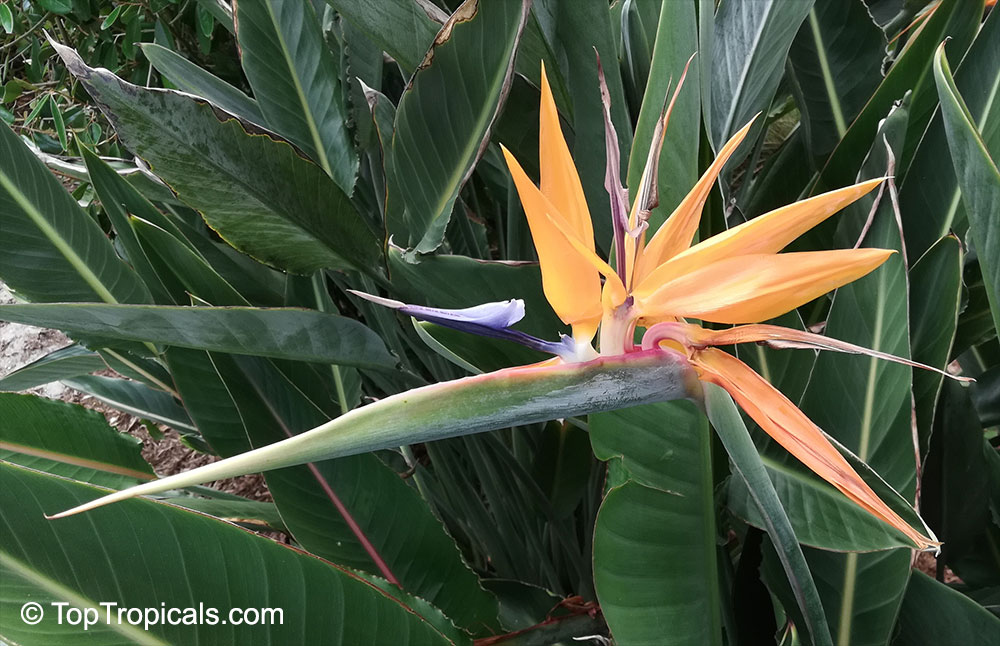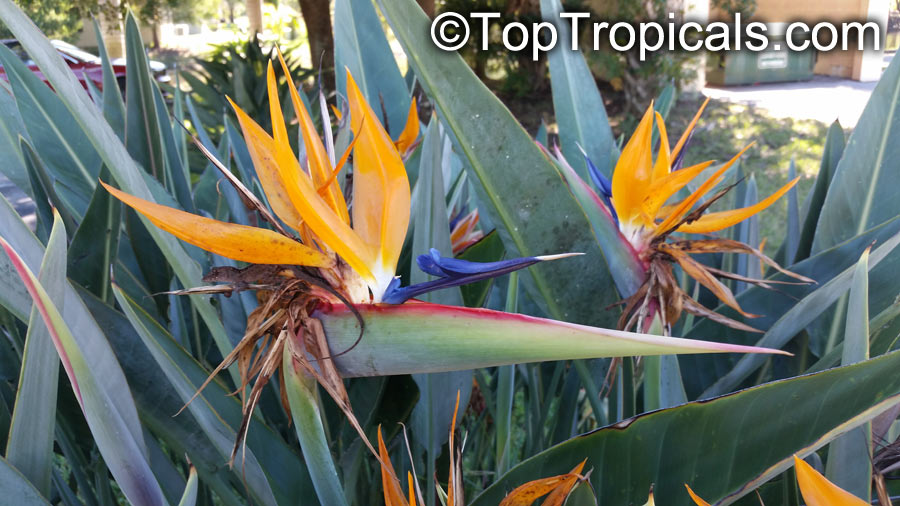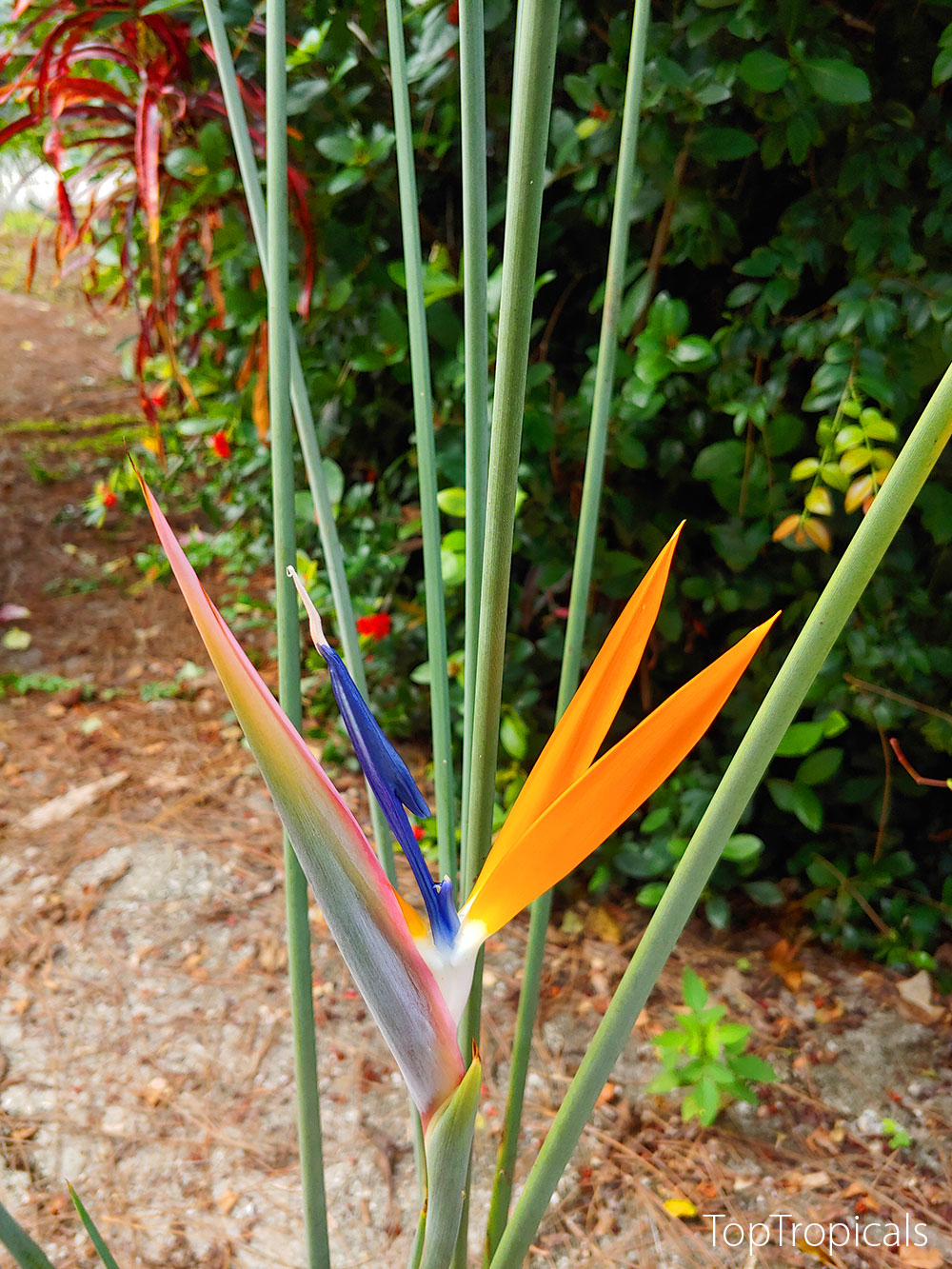Strelitziaceae - Botanical Family
| Number of plants found: 3 |
Botanical name: Ravenala madagascariensis
Common name: Travelers Palm
Family: Strelitziaceae
Origin: Madagascar






When grown in colder regions, the Travelers palm (Ravenala madagascariensis) can be grown in pots, provided you take appropriate care for cold protection. When the outdoor temperatures drop below 30°F, the pots should be moved inside or to sheltered and warmer areas such as a enclosed patio or cooler greenhouses. As they are a tropical species, they must be kept in a bright position, and the soil should remain moist. They should also be provided with regular feeding to keep them thriving. If kept in a pot, make sure to prune the leaves and the stems, to limit their growth and keep away pests. On the other hand, they can also be kept outdoors. If kept outdoors, make sure to water them regularly and add a slow-releasing fertilizer once a month. As they are also tolerant to salt spray, they can be planted near roads or seaside.
In conclusion, the Travelers palm is a beautiful palm-like tropical plant. It is a plant native to Madagascar and offers a unique and interesting look to gardens and yards. It will thrive in full sun or semi-shade, and requires regular watering, especially in warm periods. If grown in colder regions, this plant can be easily managed in pots, though extra care should be taken for cold protection. Moreover, it is tolerant to salt spray and can be planted near roads or seaside.
Botanical name: Strelitzia nicolai
Common names: Giant Bird of Paradise, White Bird of Paradise
Family: Strelitziaceae
Origin: South Africa








It has become very popular for indoor use over the last 10 to 15 years. It is used outdoors in both Florida and California as a landscape plant, where it can reach a height of 20 or more feet. The flowers can reach a size of 10-12 inches, but plants need to be a few years old before they will flower. Don't expect flowers indoors. Nicolai can handle a wide variety of soils and can grow in a variety of conditions. One condition that it cannot take is having extremely WET soil so it is best to keep it on the dry side. The "White Bird" isn't a small plant, but it is a very upright plant so it can fit into some tight spaces. Their large banana-shaped leaves add a rich tropical look to almost any interior. Growers usually use multiple plants to get a fuller plant.
Botanical name: Strelitzia reginae
Common names: Bird of Paradise, Crane Flower, Stelitzia
Family: Strelitziaceae
Origin: South Africa








Strelitzia reginae, commonly known as Bird of Paradise, is a South African plant that produces striking flowers in various bright colors such as white, off-white, blue, lavender, purple, and yellow-orange. This species is relatively small, usually growing between 2-5 ft tall, and is well-suited to thrive in full sun to semi-shade with moderate watering.
The plant's tall flower spikes are striking characteristic and are topped with brilliant orange sepals and bright blue petals. The flowers emerge one at a time from a hard, beak-like sheath called a spathe. This gives the flower the appearance of a bird's head, hence the common name Bird of Paradise.
Strelitzia reginae is a hardy and low-maintenance plant that responds well to regular feeding with a slow-release fertilizer and compost. It thrives in a rich, loamy soil with plenty of water throughout the year, and it can tolerate a variety of soils and conditions. Strelitzia reginae is a unique and memorable plant that is sure to make a statement in any garden. Its stunning flower structure, low-maintenance nature, and tolerance to different soils and conditions have made it a popular choice for gardeners around the world.
Bird of Paradise is incredibly easy to grow, especially in warm climates! This tough, low-maintenance tropical thrives in full sun to partial shade, needs well-draining soil, and can handle drought once established. It's resilient, long-lived, and nearly indestructible - perfect for beginners! To keep it happy, just give it regular watering during growth and occasional fertilizer for best blooms. It loves warm temperatures (zones 9-11), but in cooler areas, grow it in a pot and bring it inside during winter. With minimal care, you'll get stunning, bird-like orange and blue flowers that bloom year after year. A showstopper, a survivor, and a statement plant all in one!
Recommended Fertilizer: SUNSHINE Robusta - Rapid Growth Booster
Use link to repeat this search:
https://toptropicals.com/cgi-bin/garden_catalog/cat.cgi?search_op=and&keyword_op=and&language=e&family=Strelitziaceae
&number=10&no_change_lang=1&user=tt&sale=1&first=0
